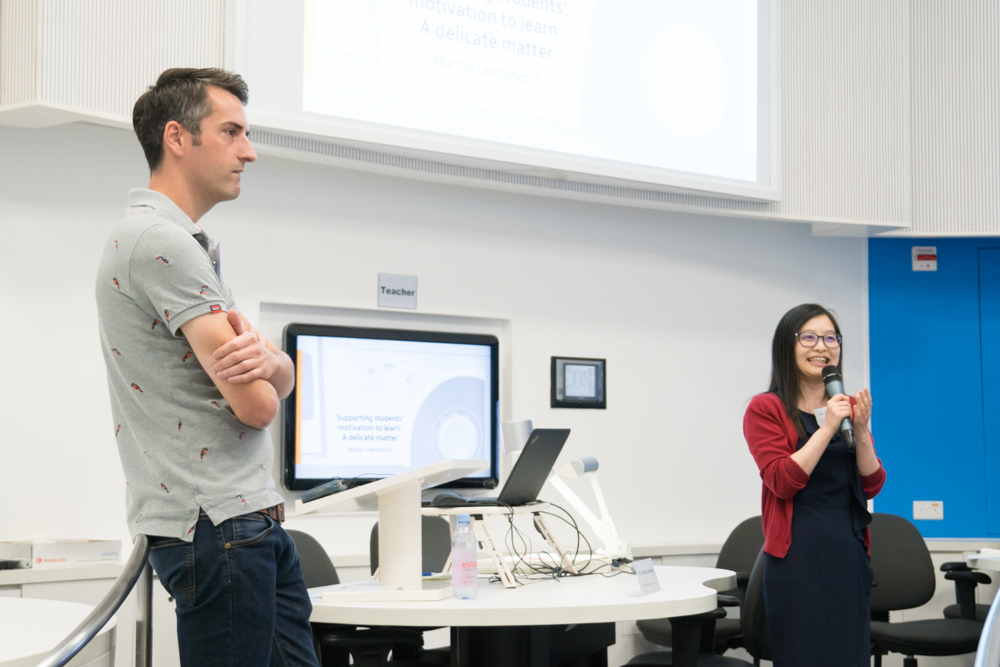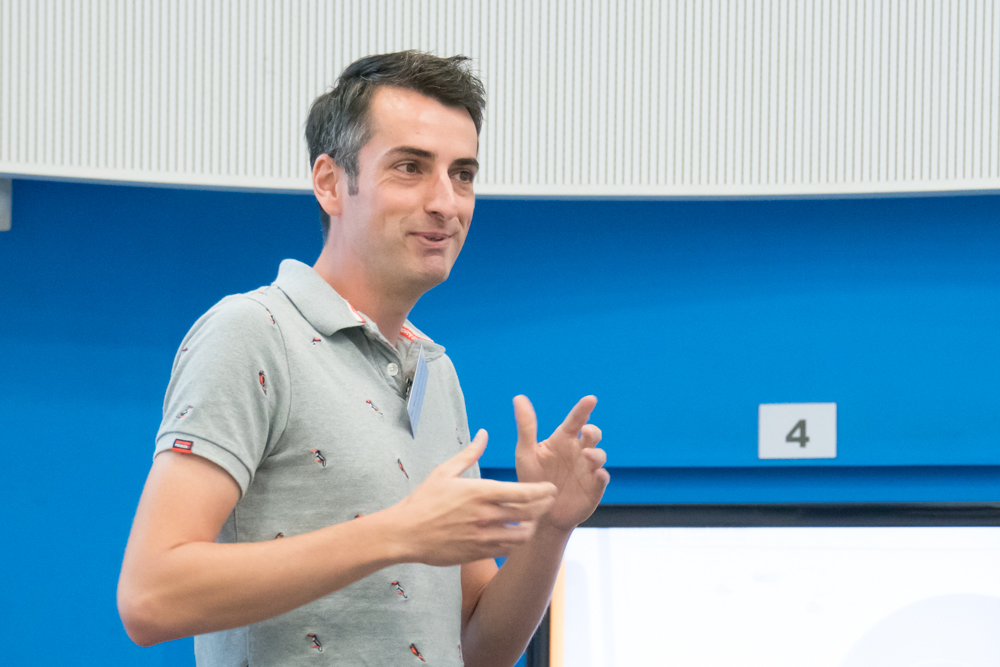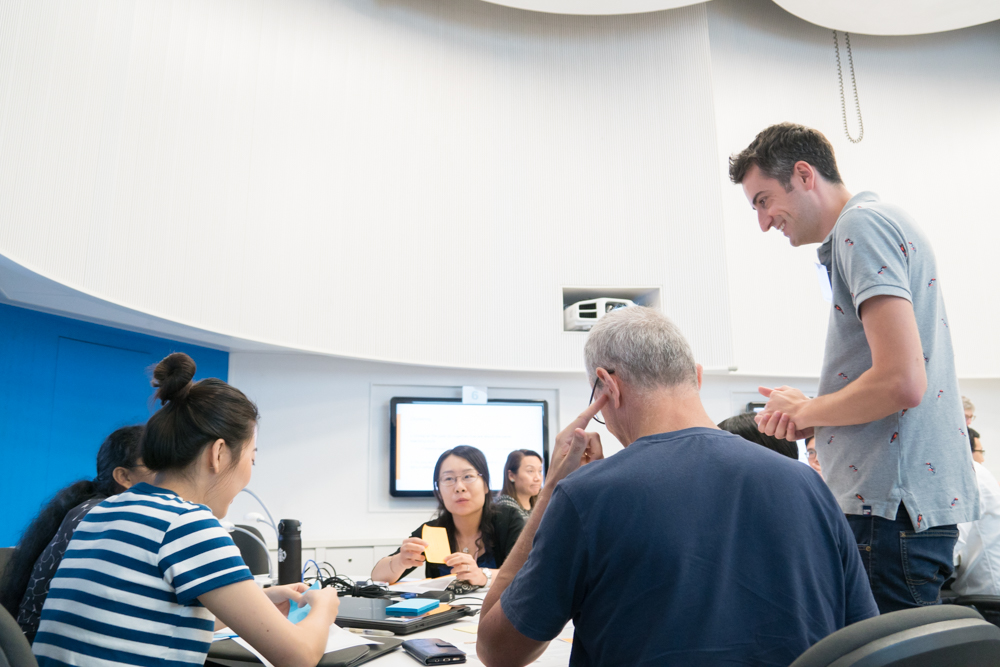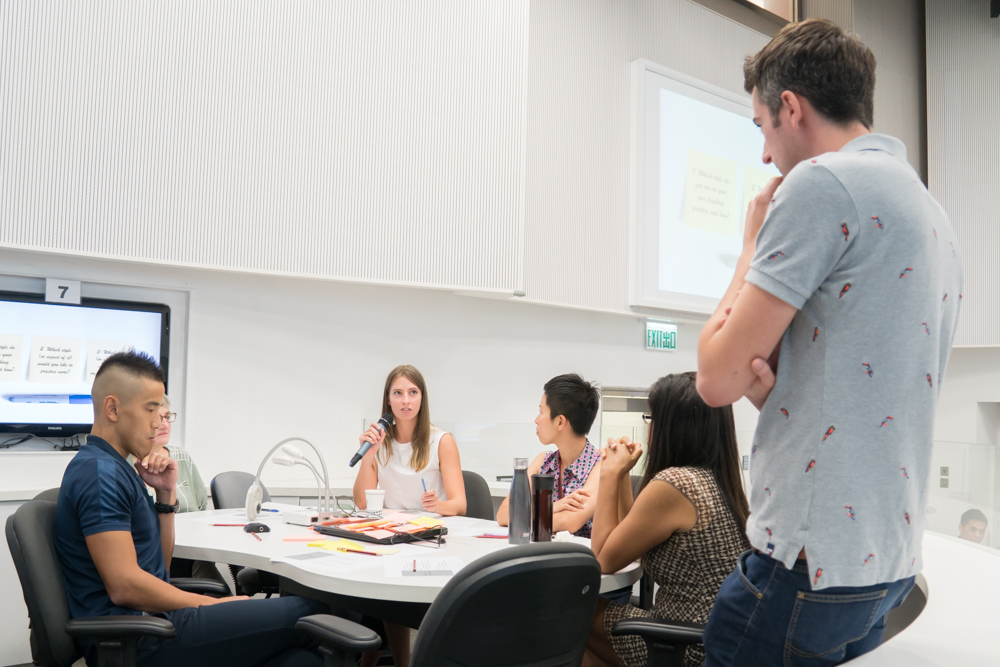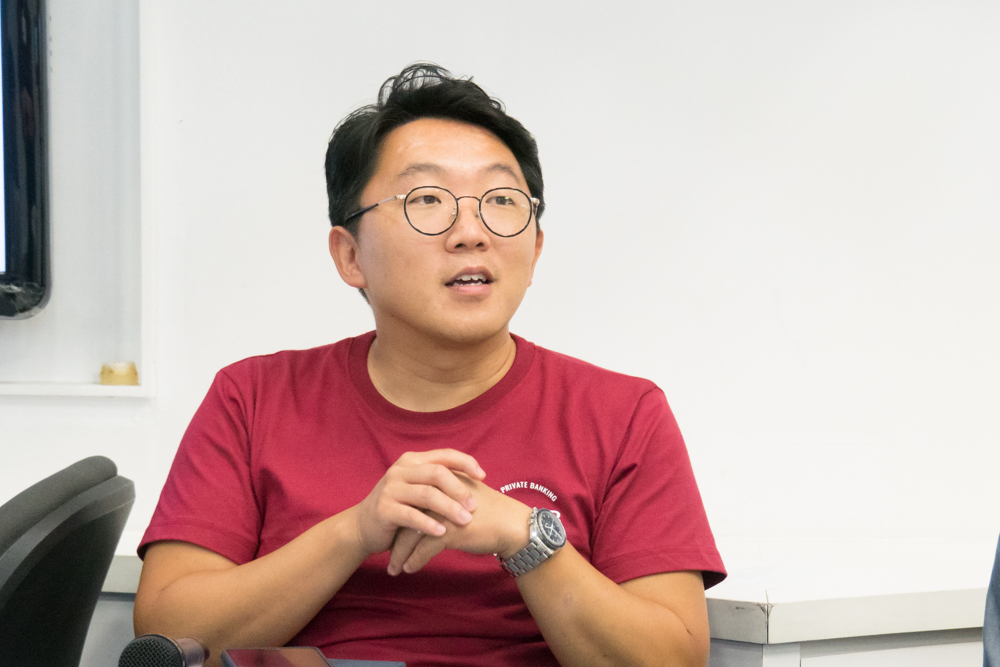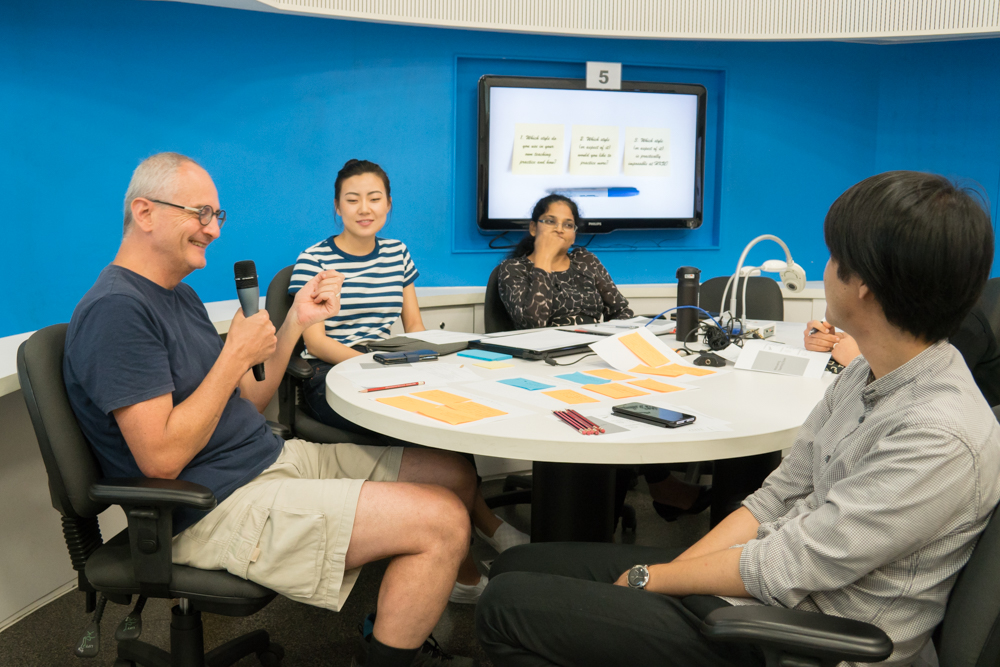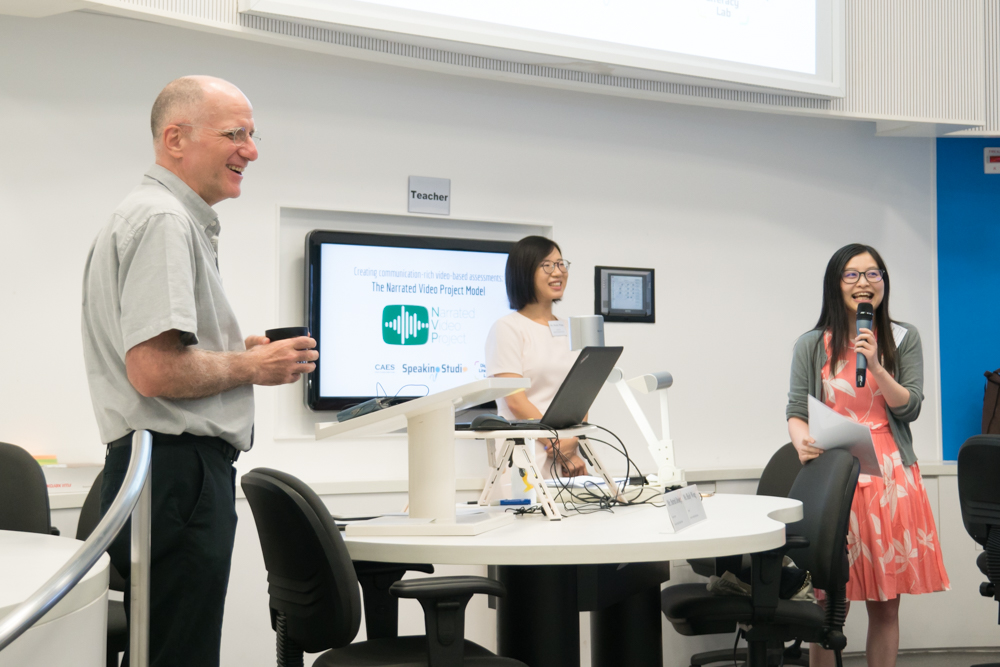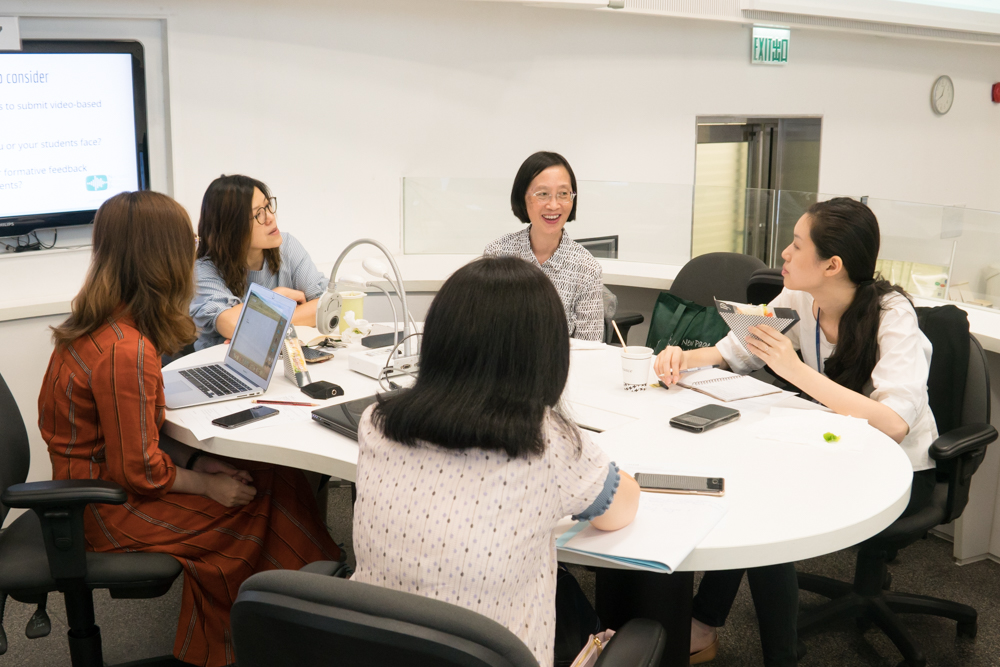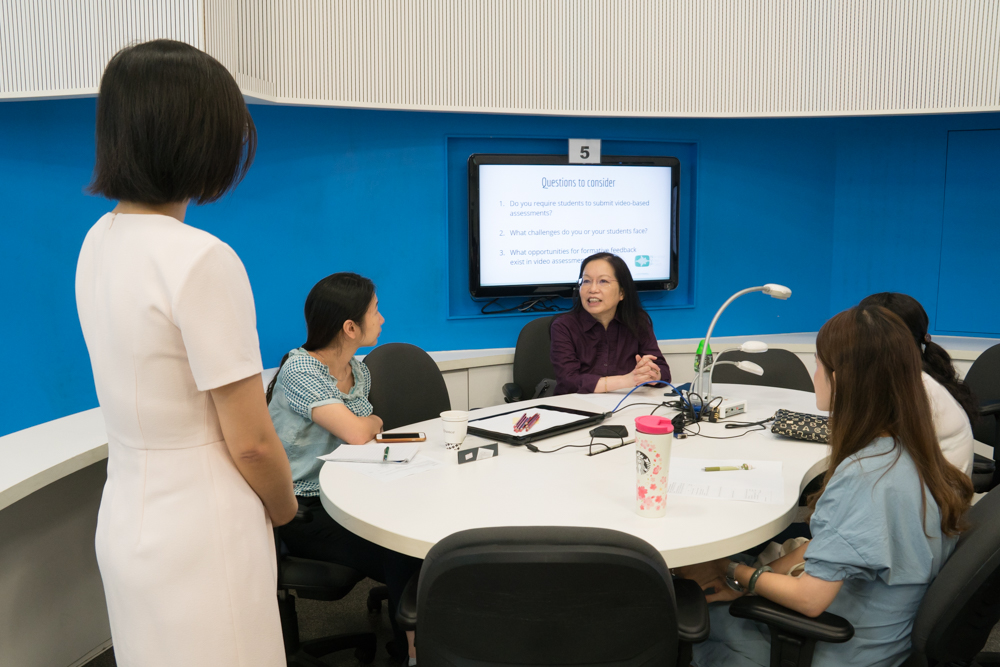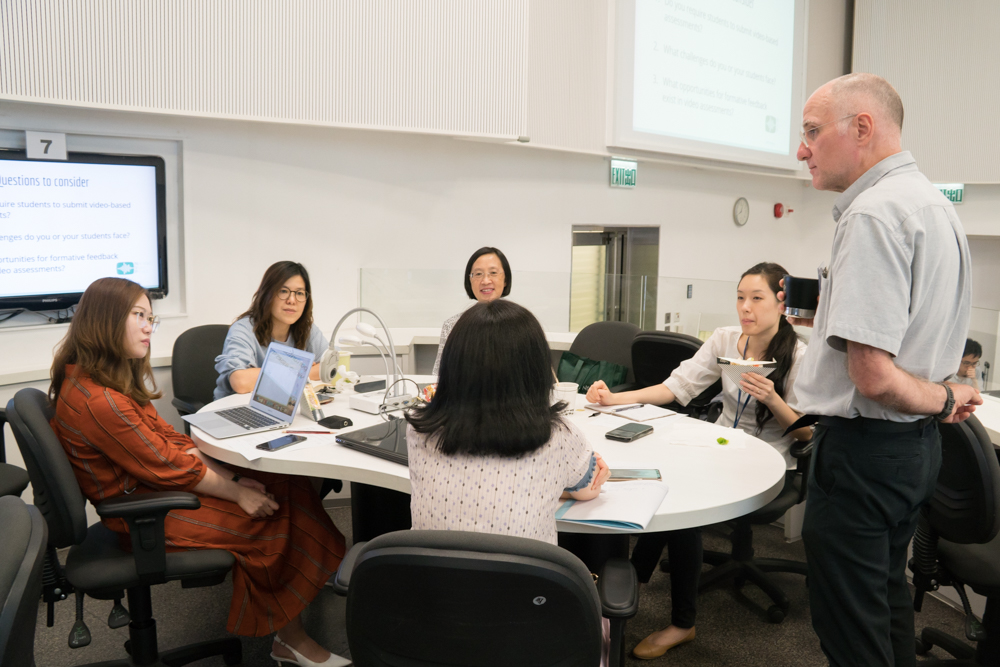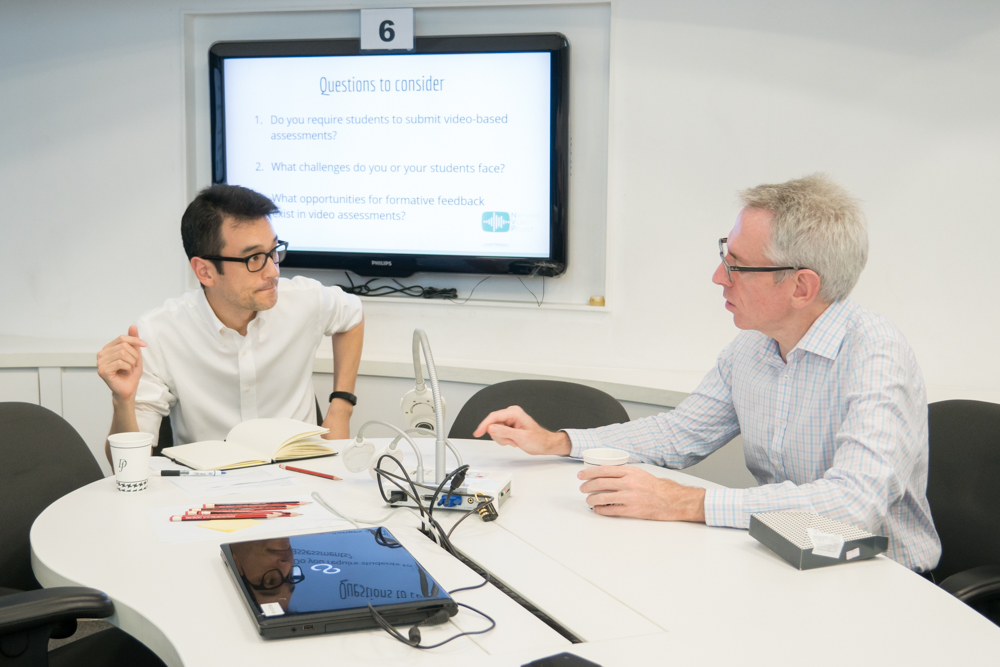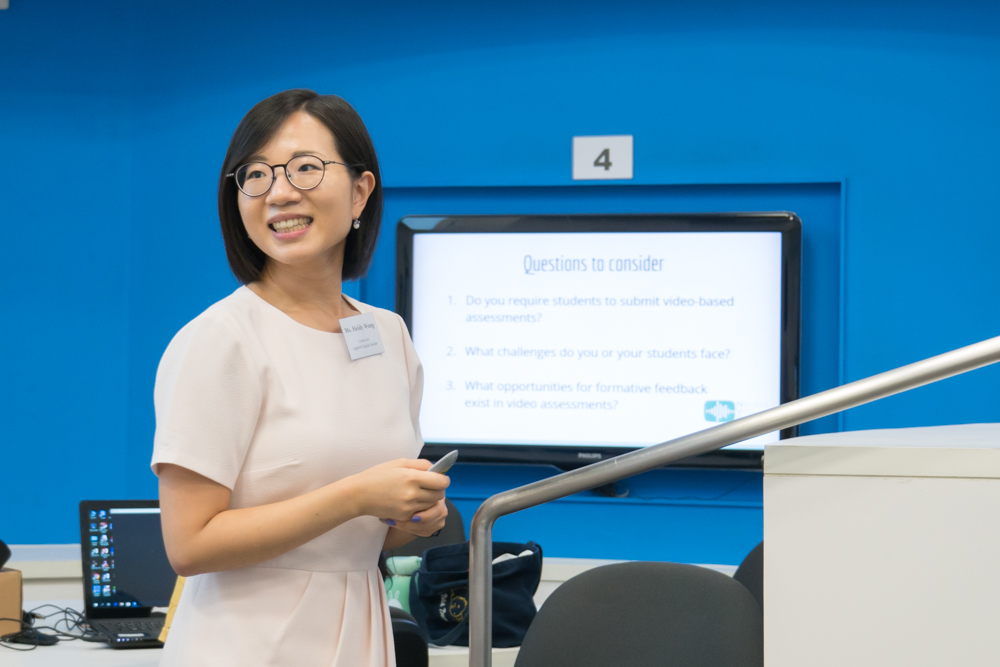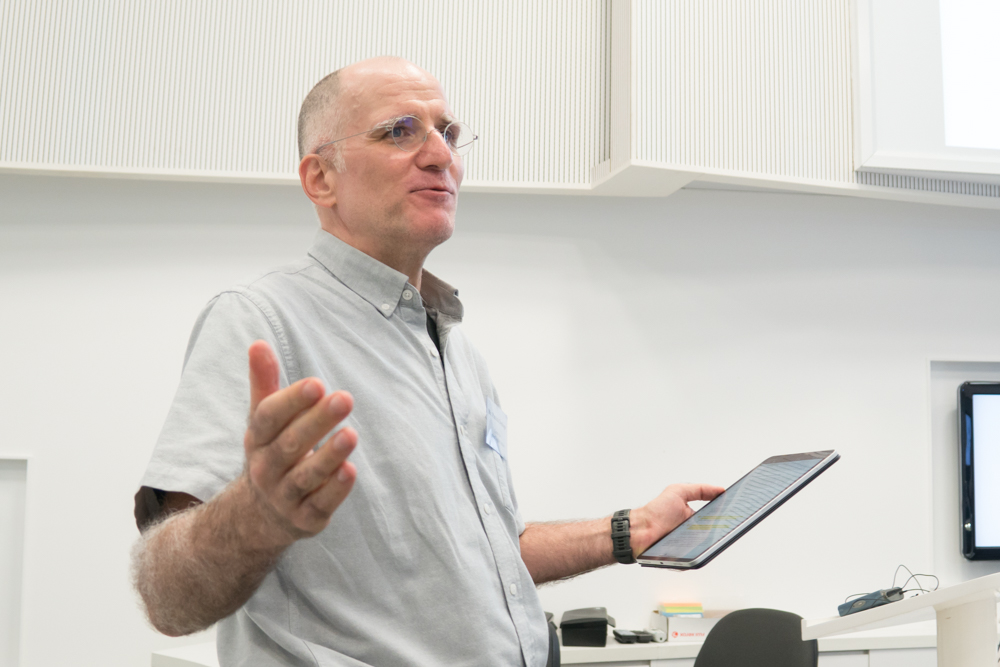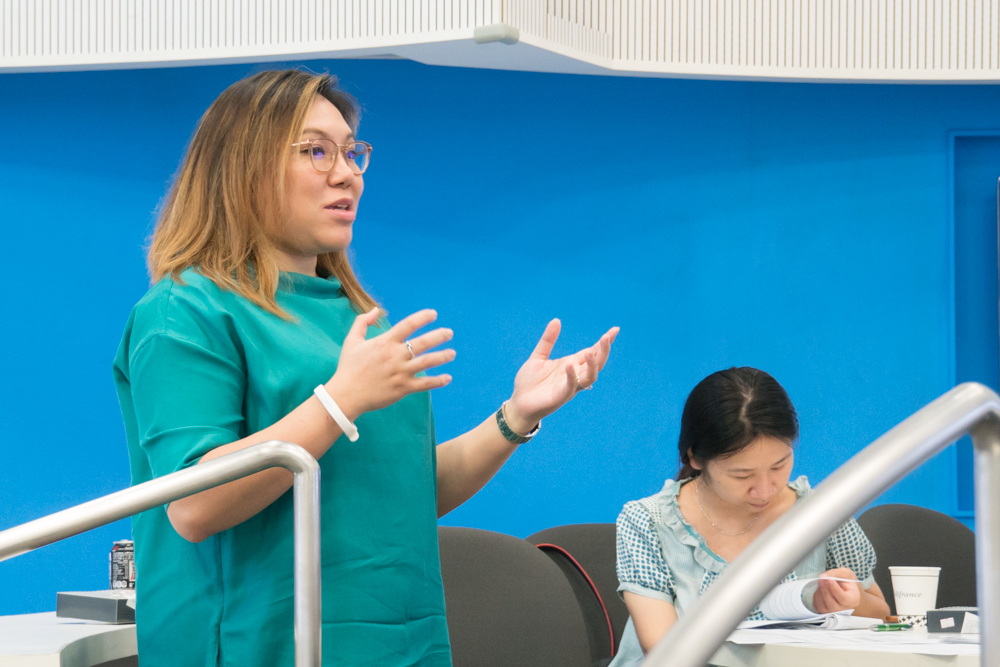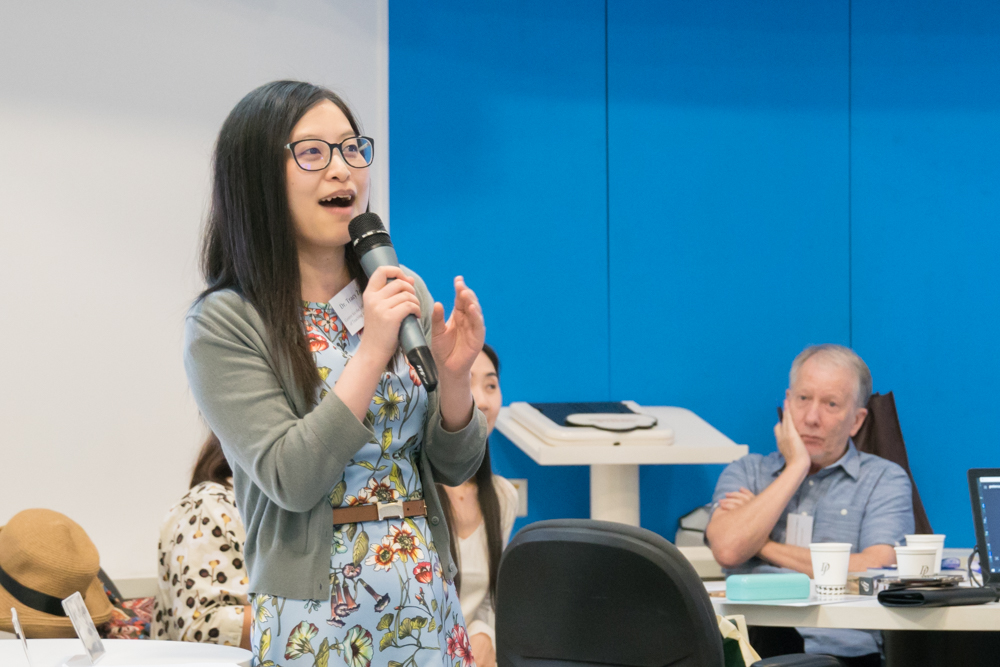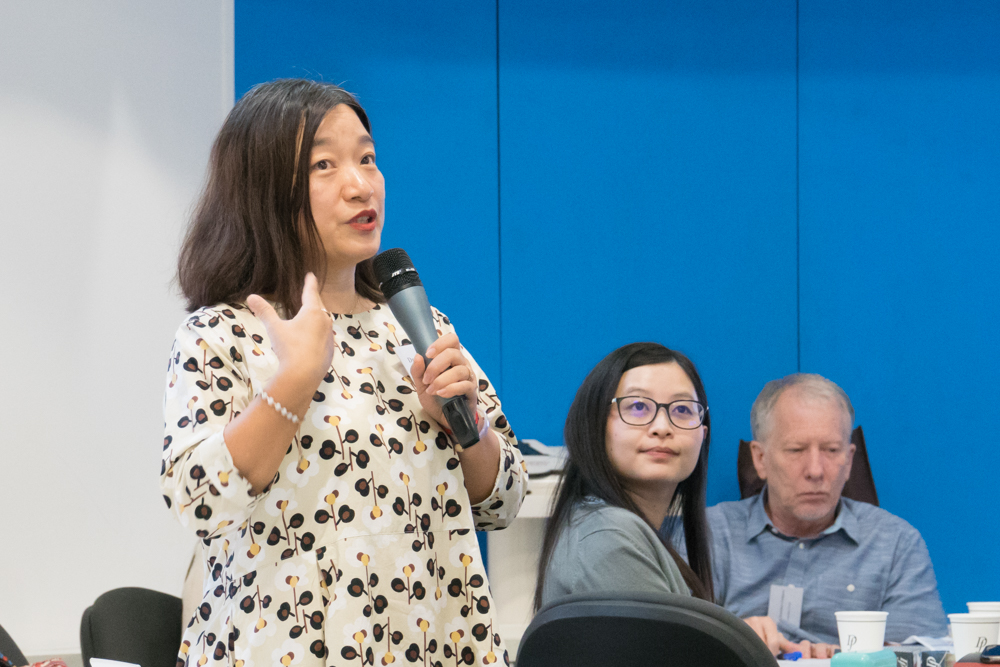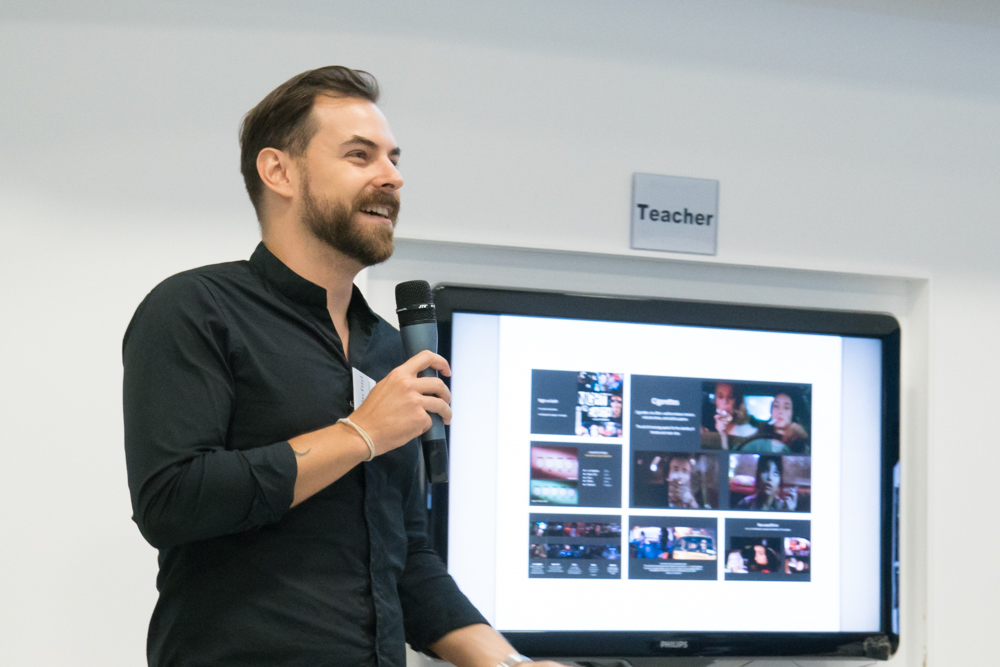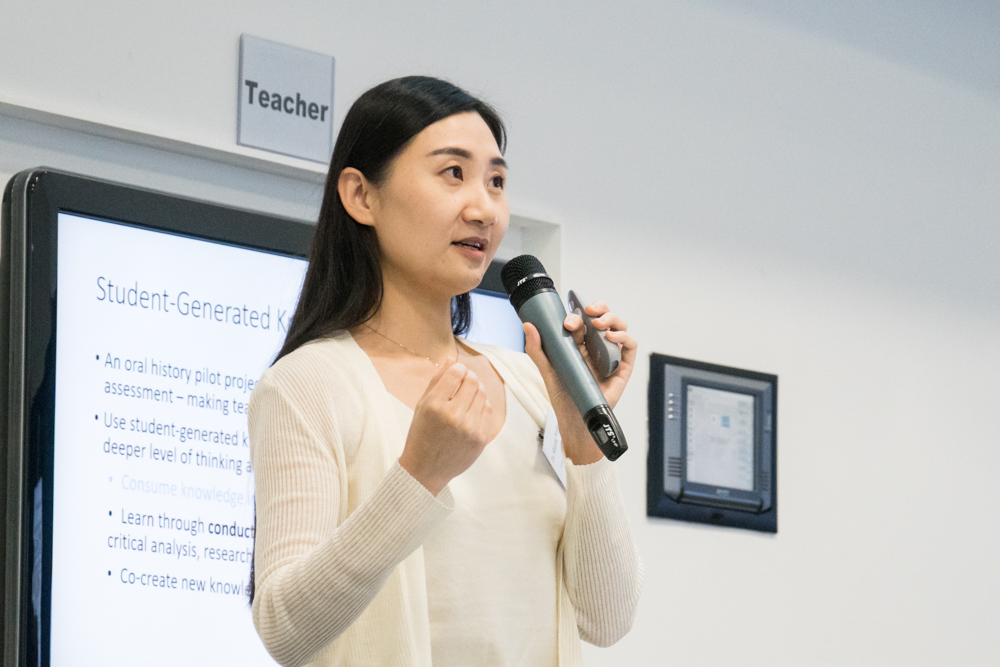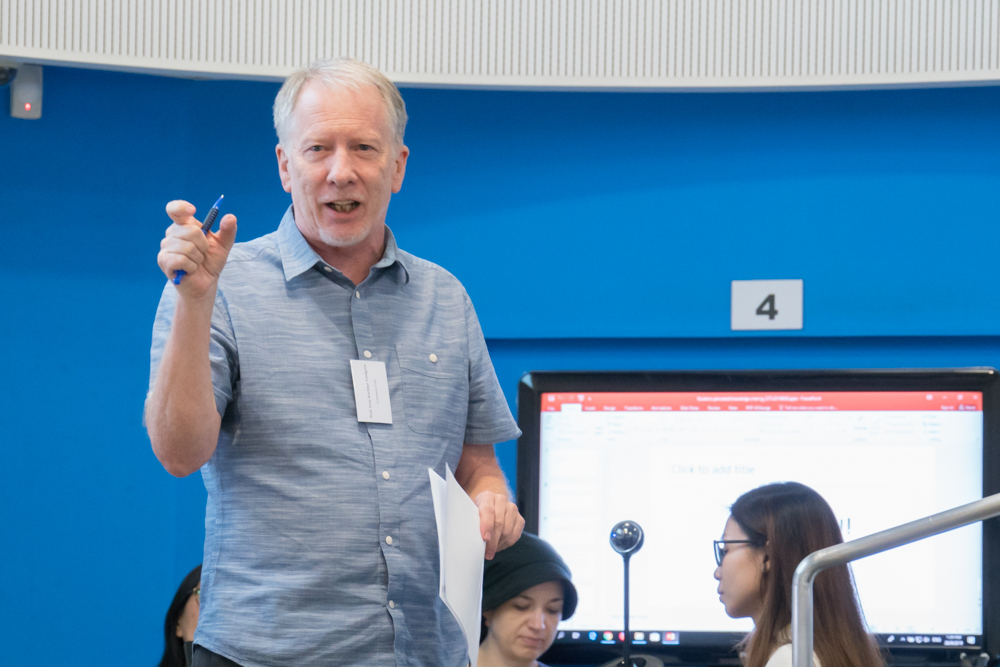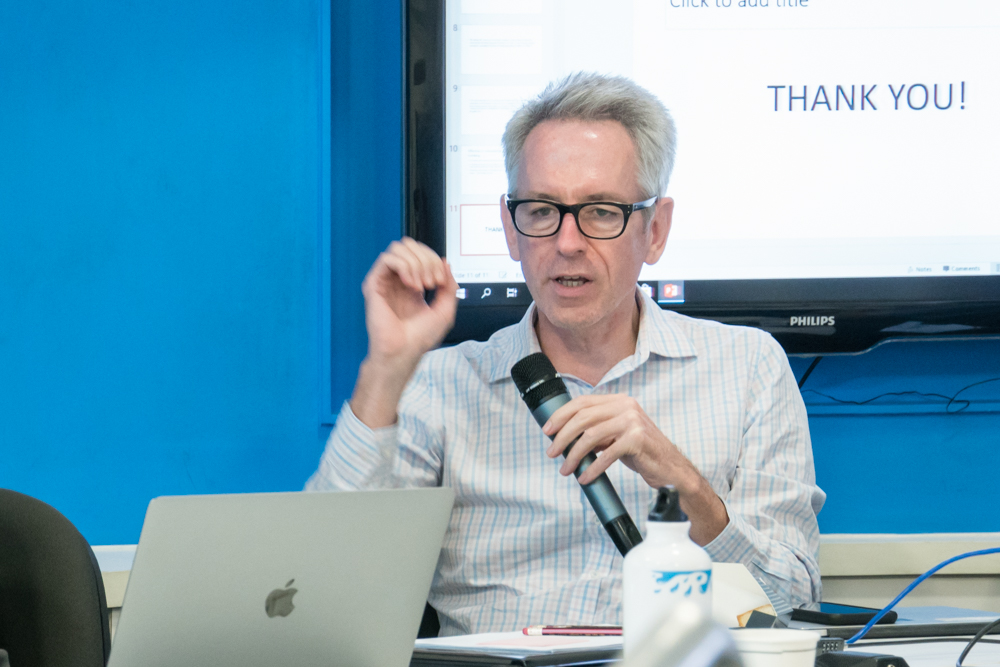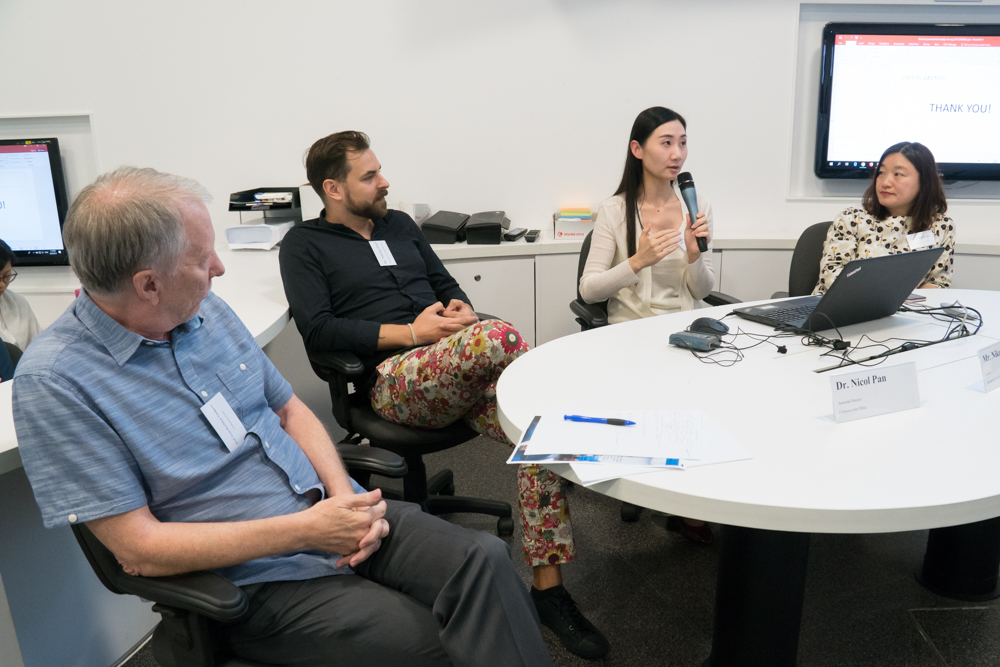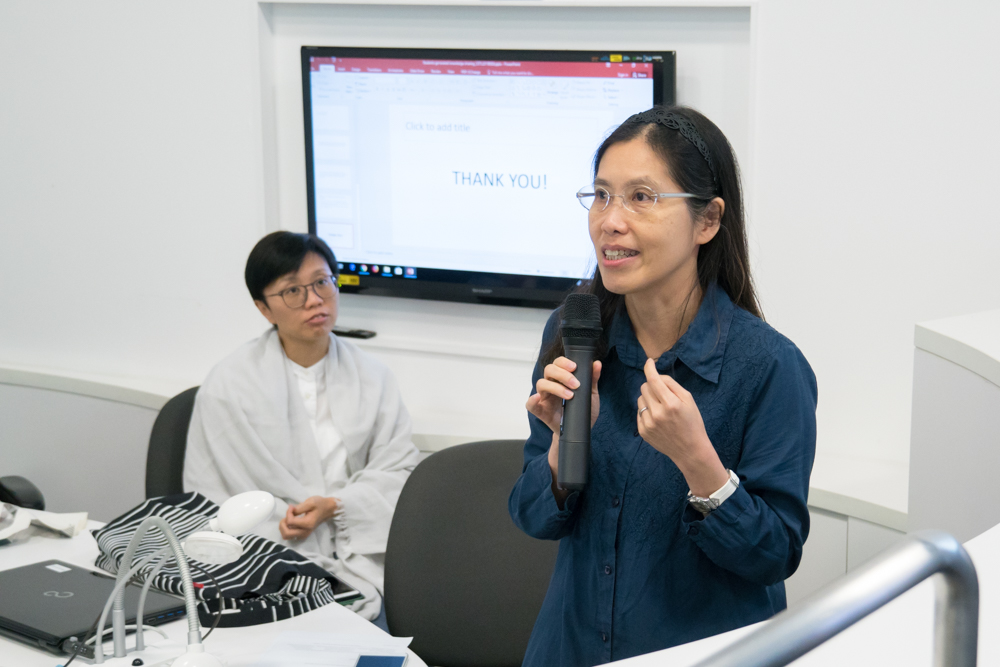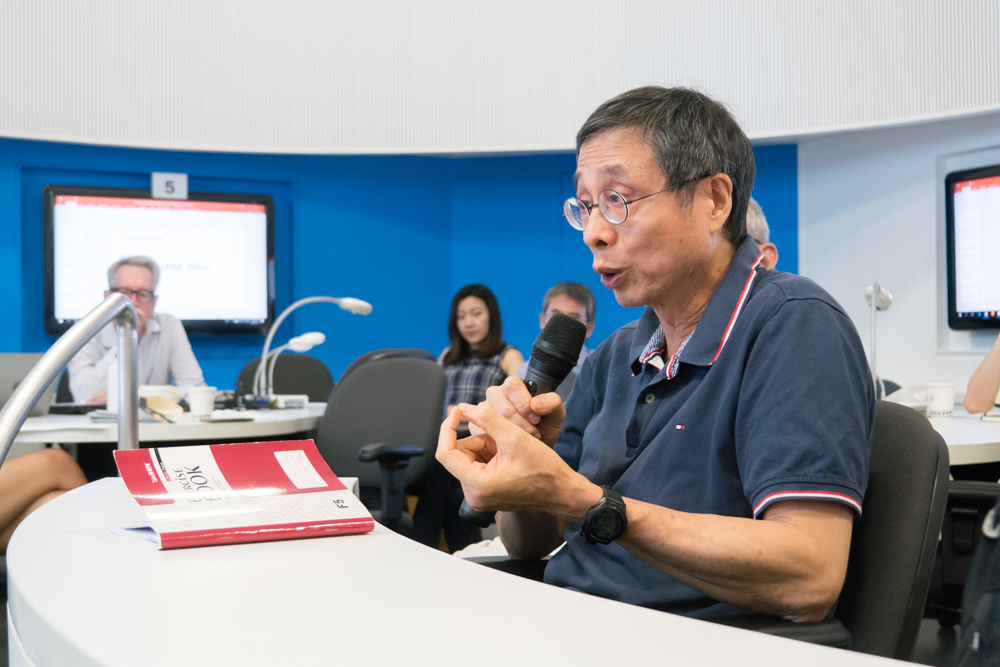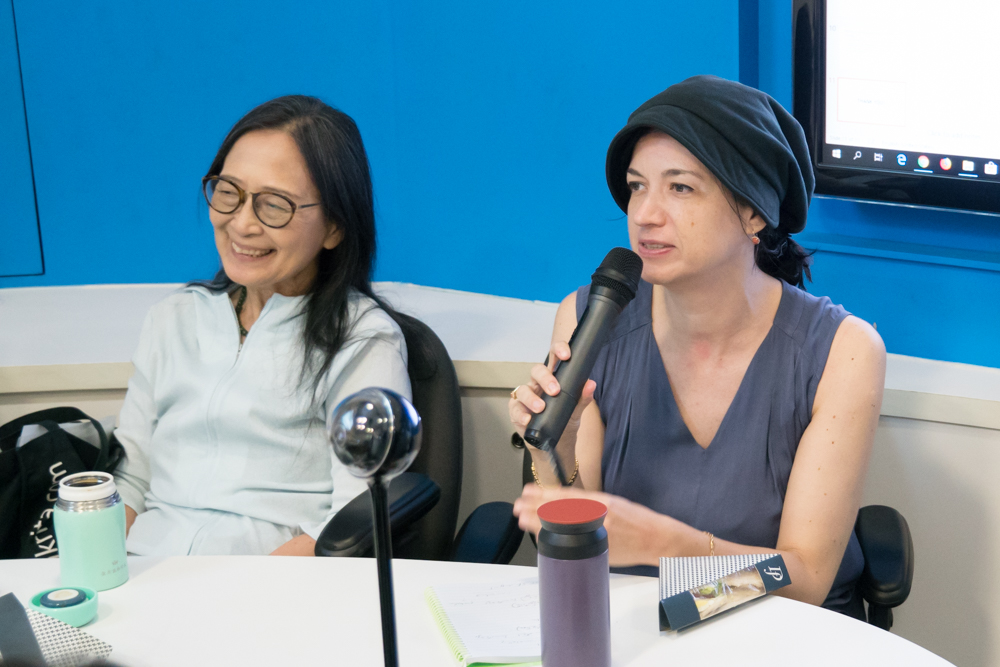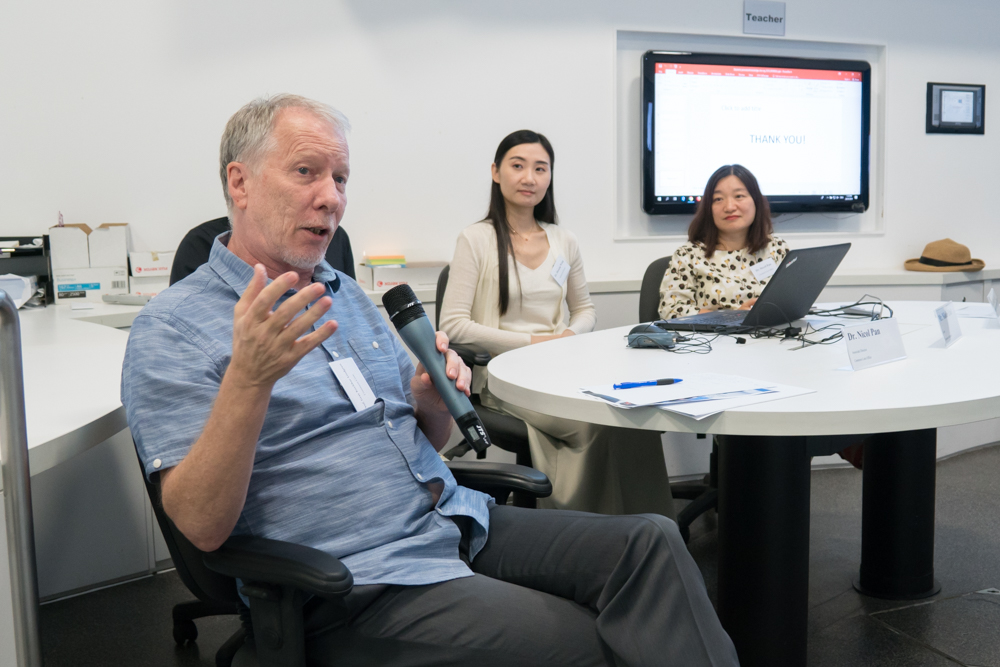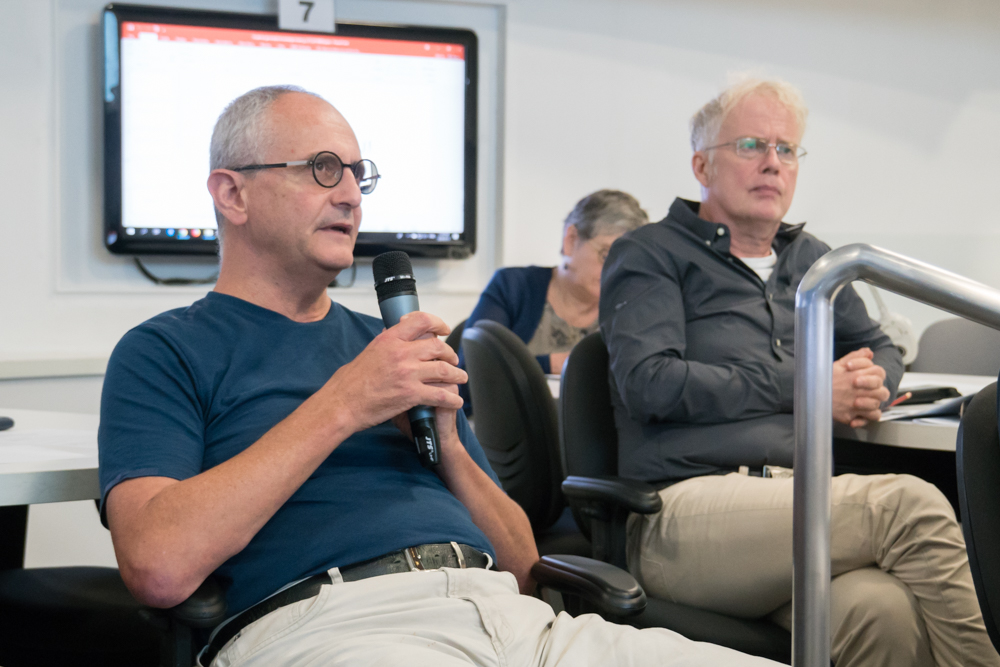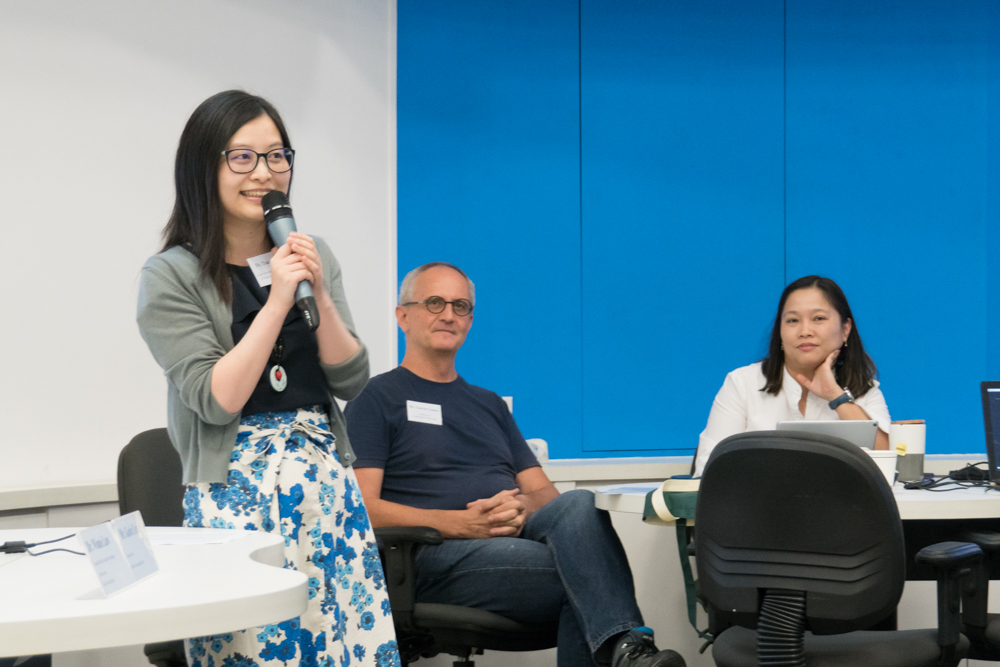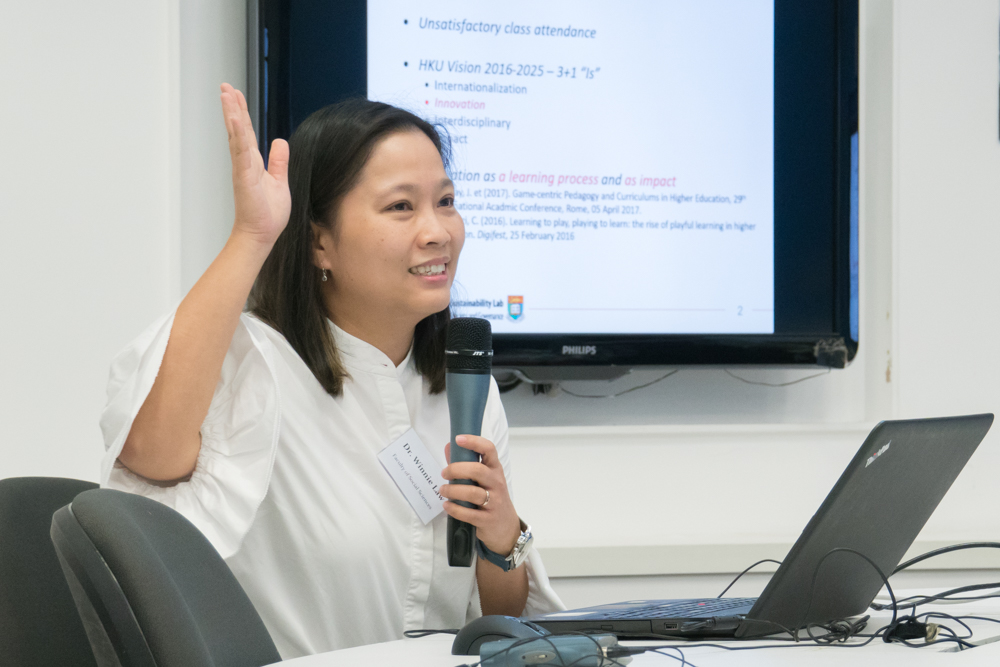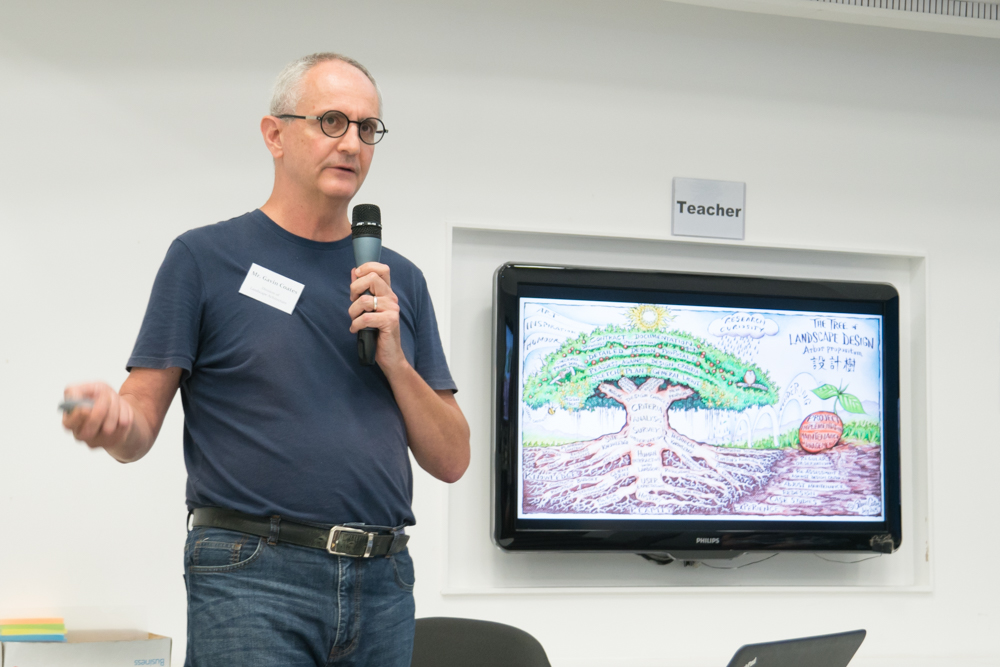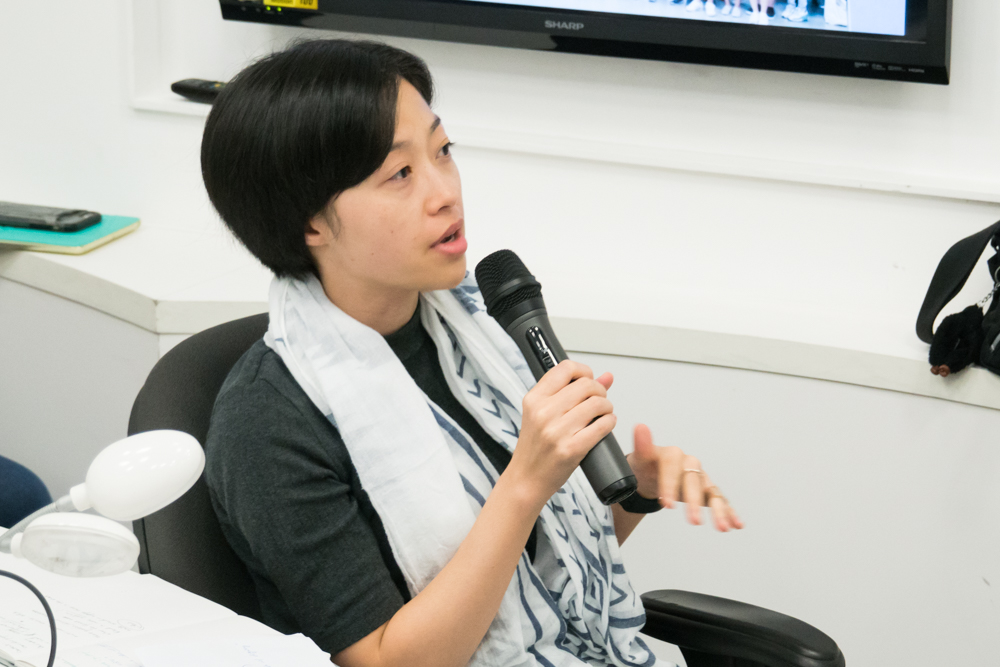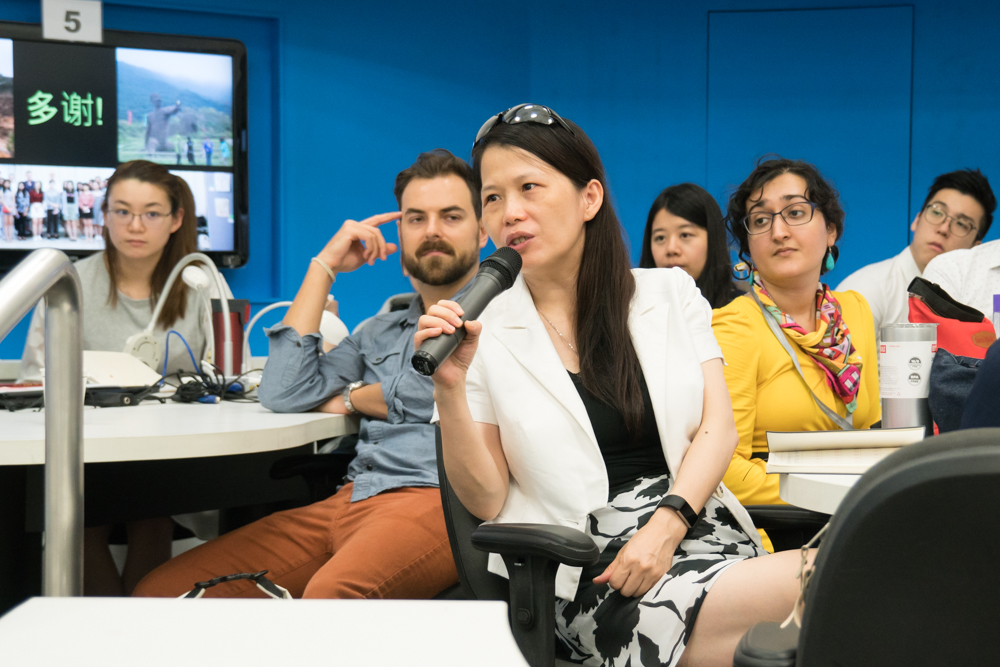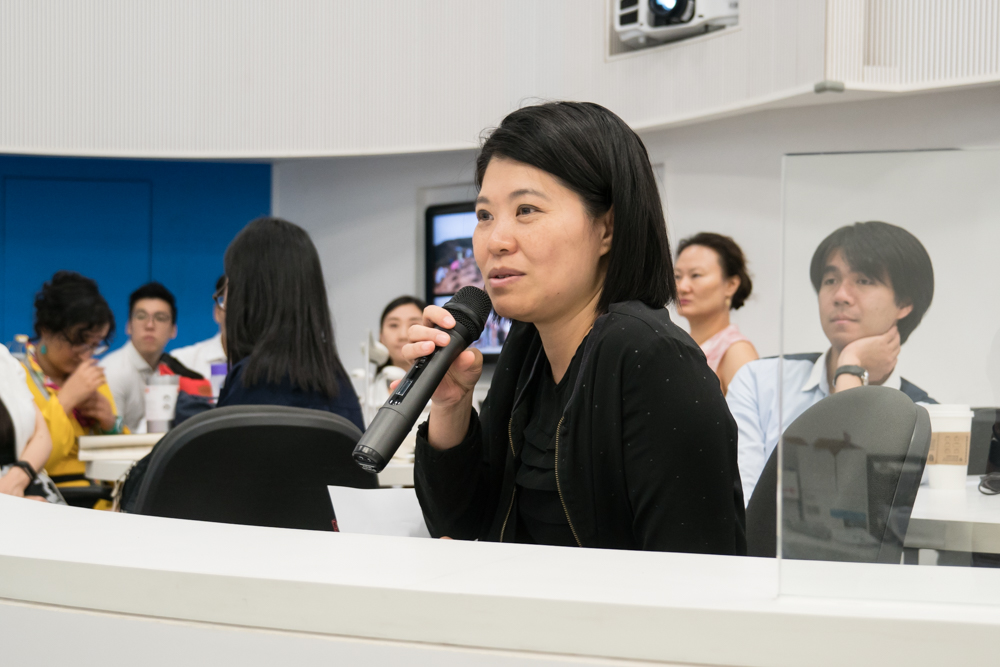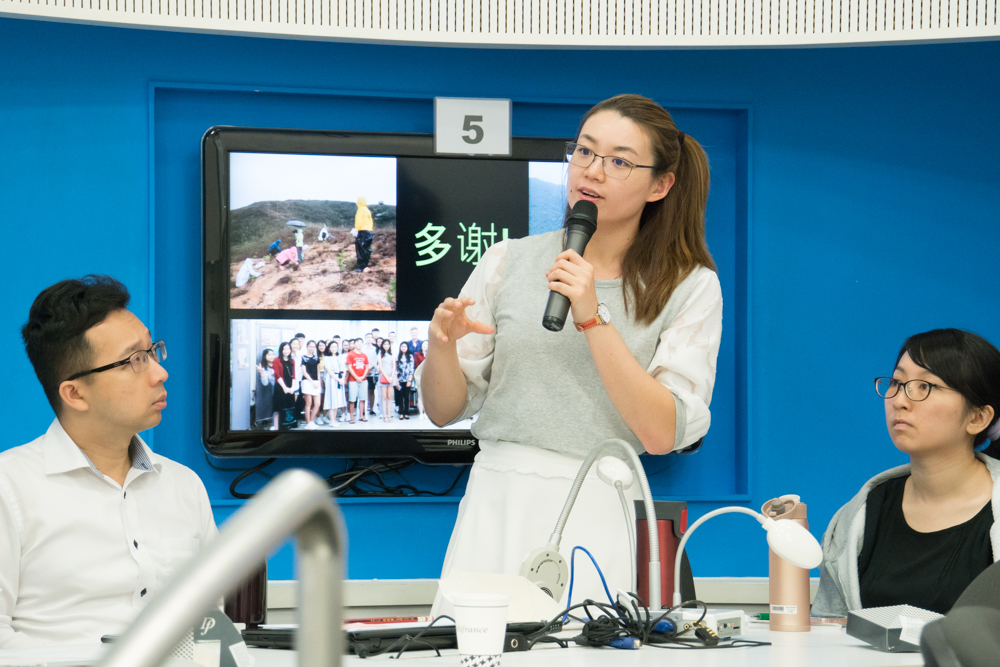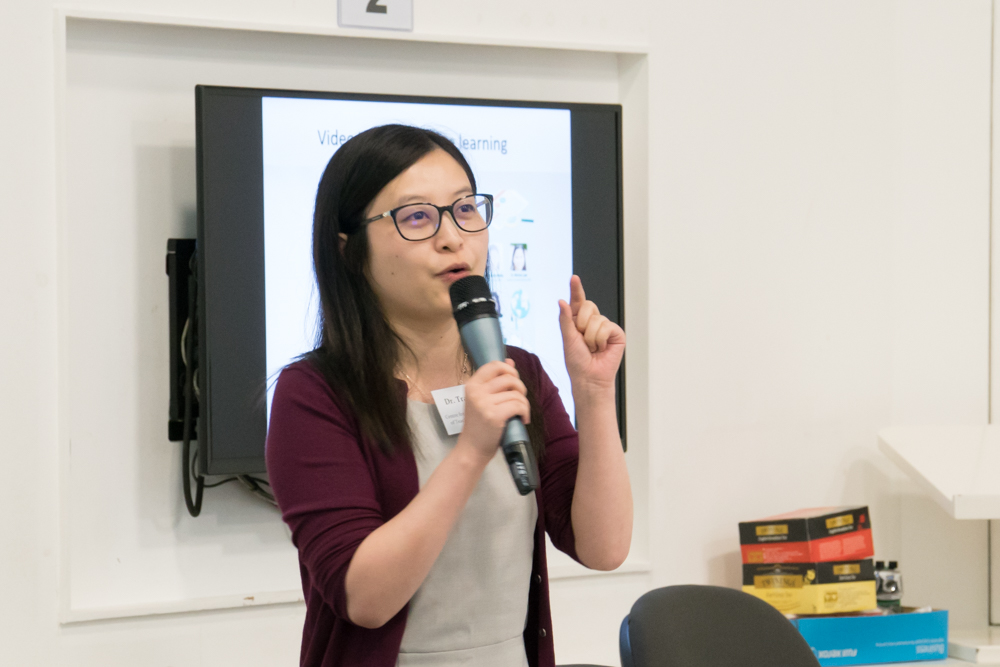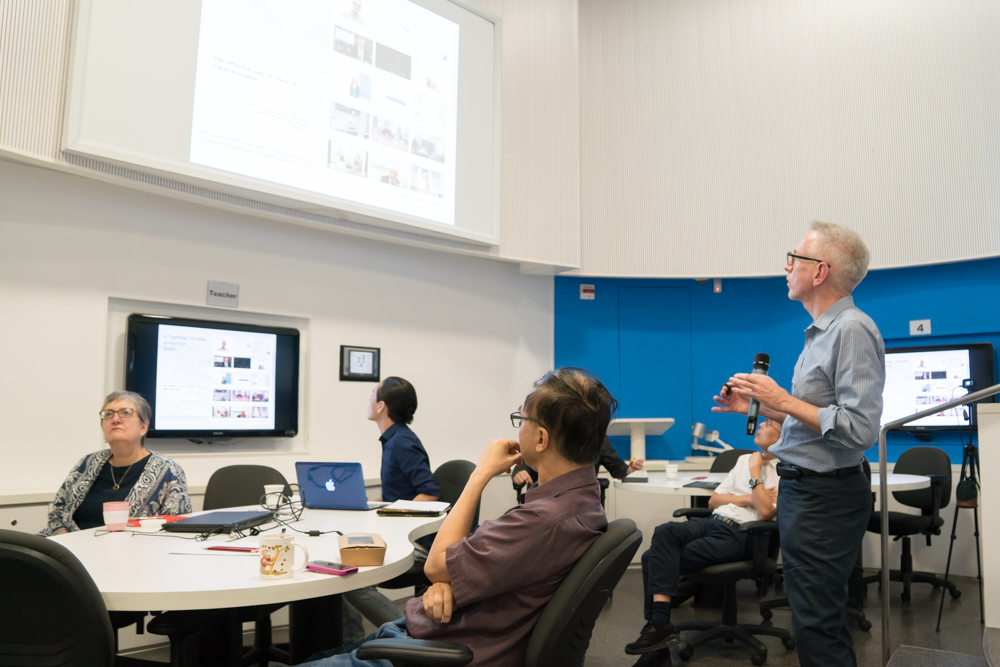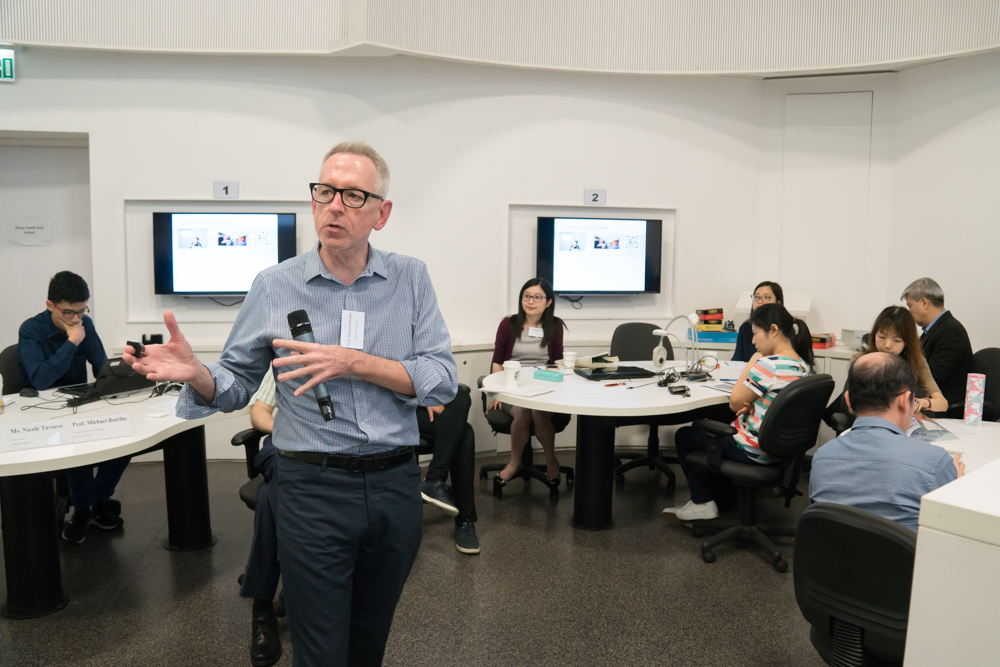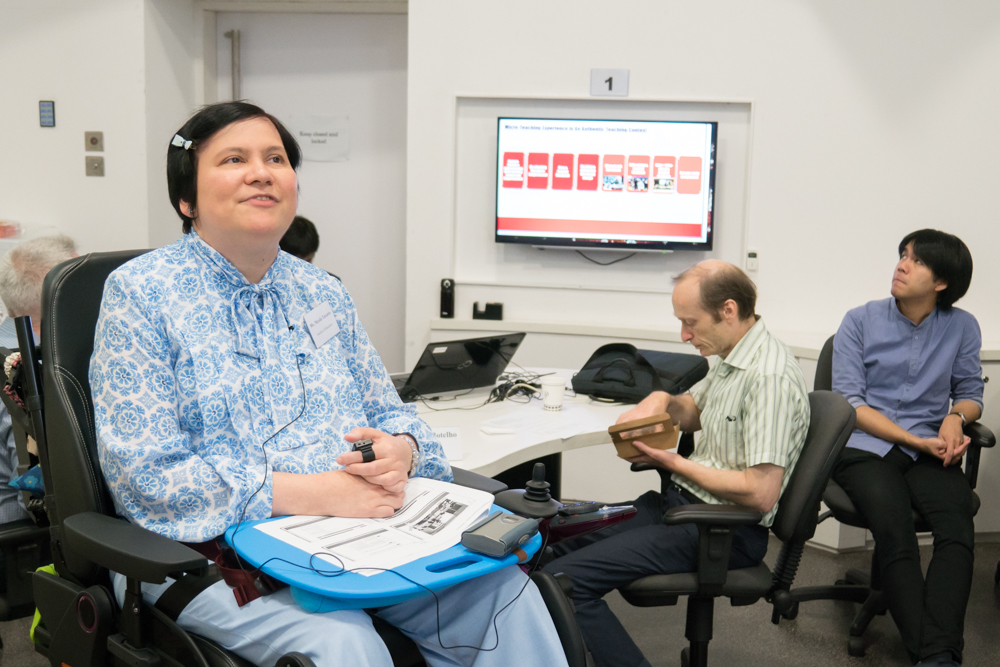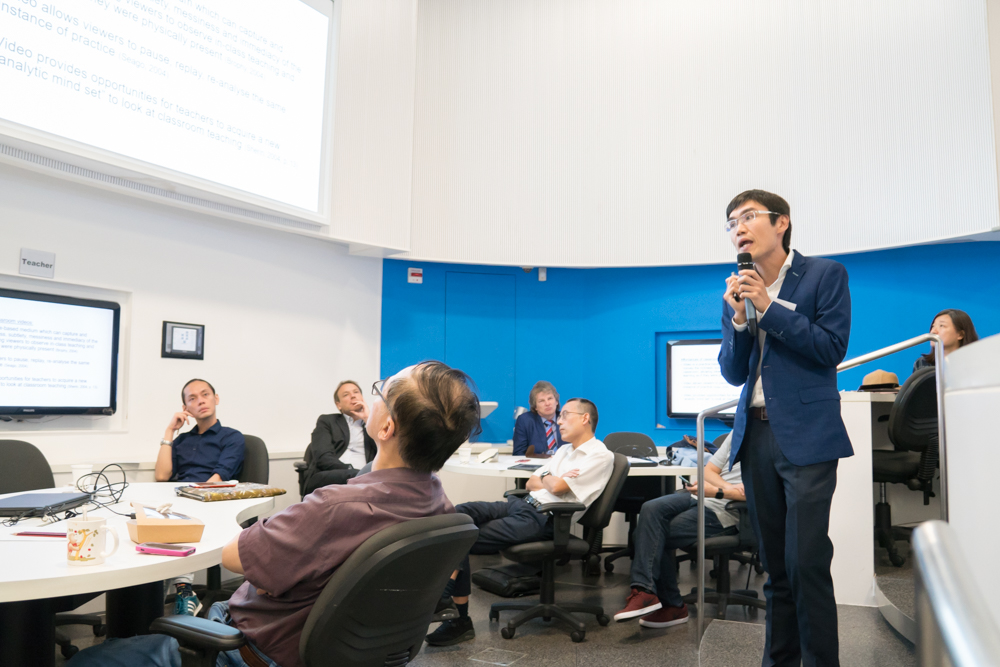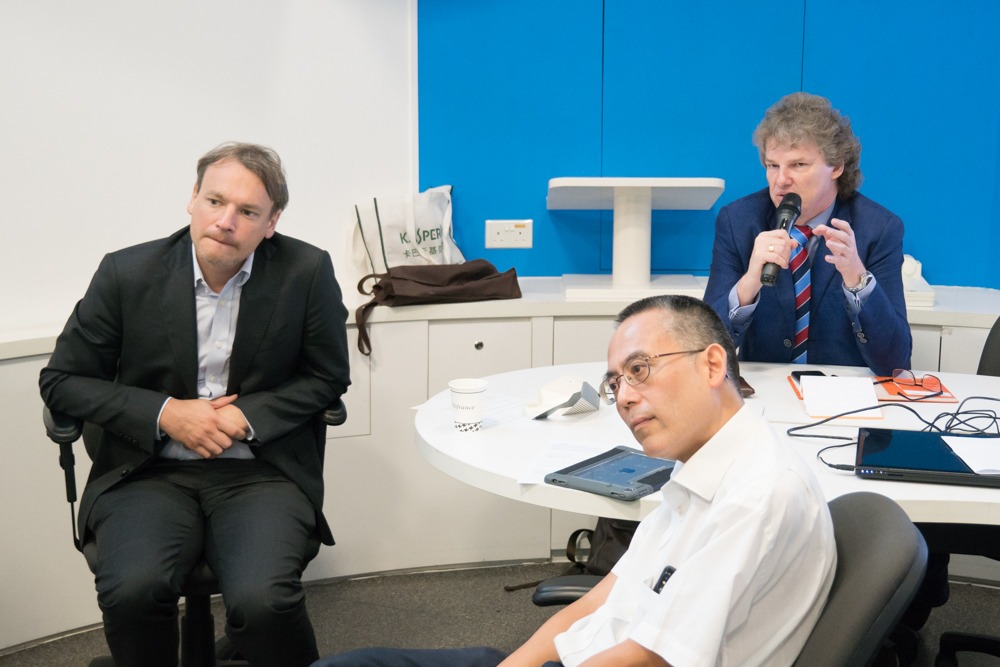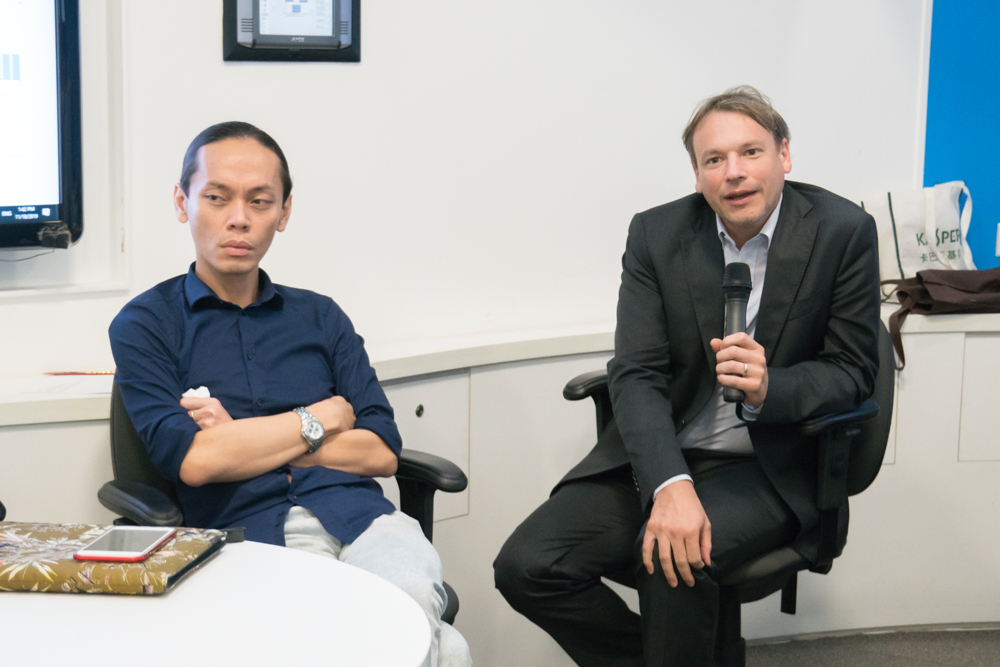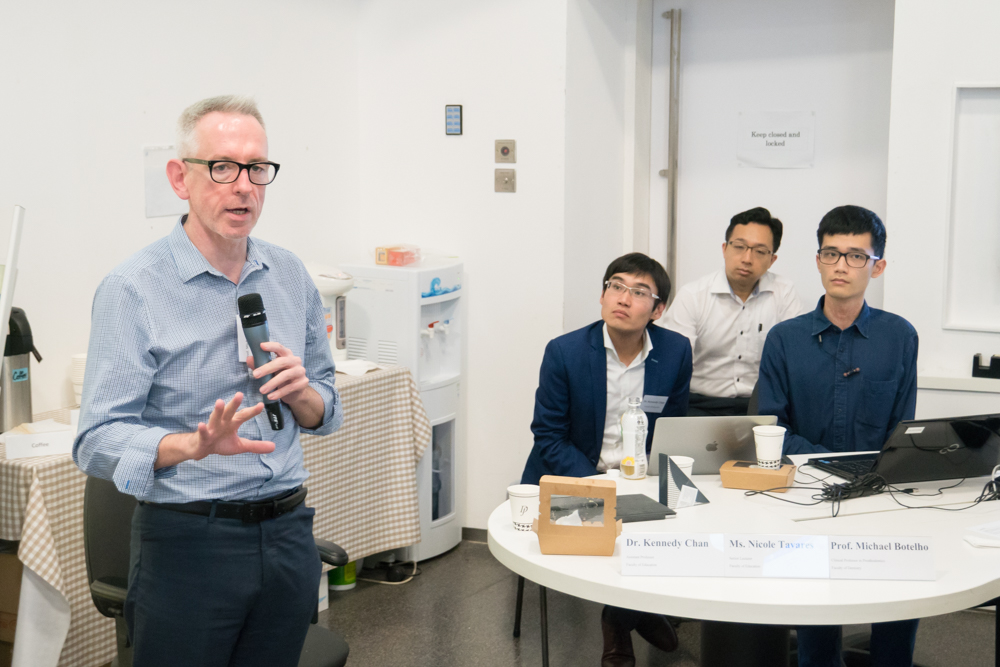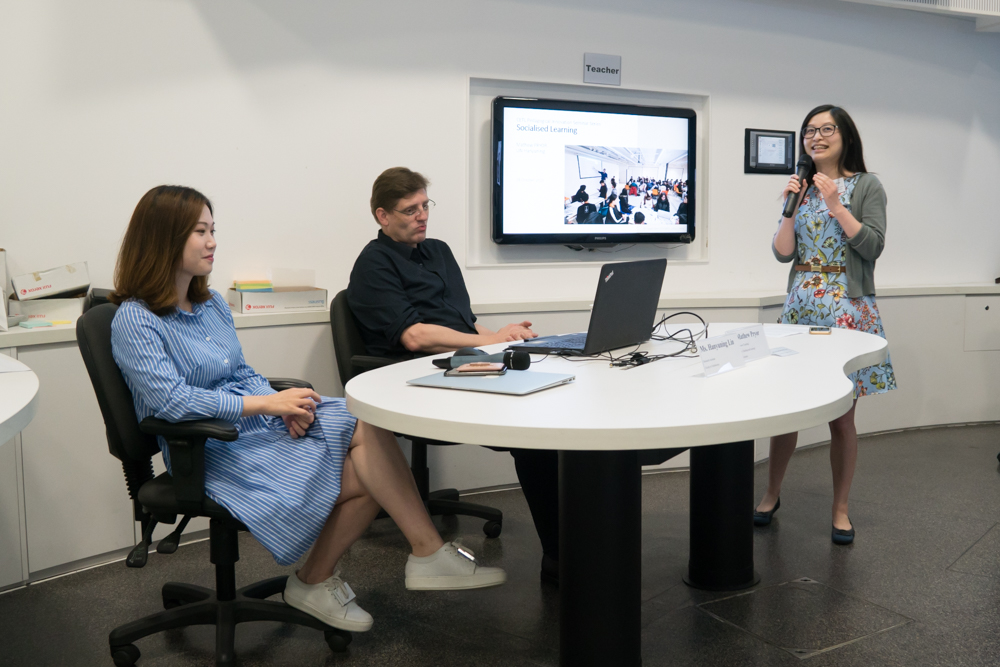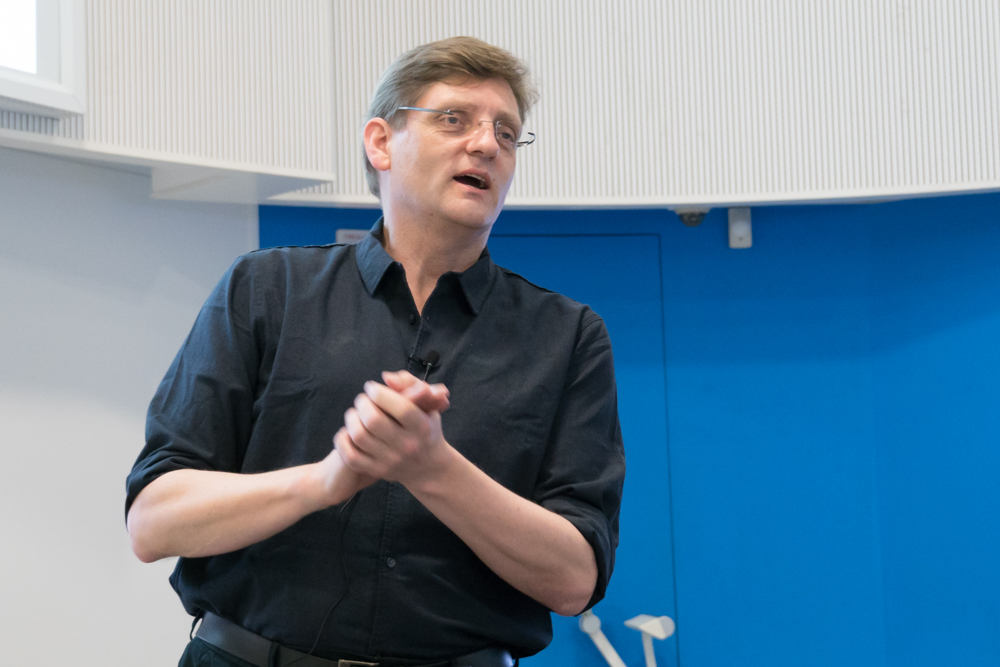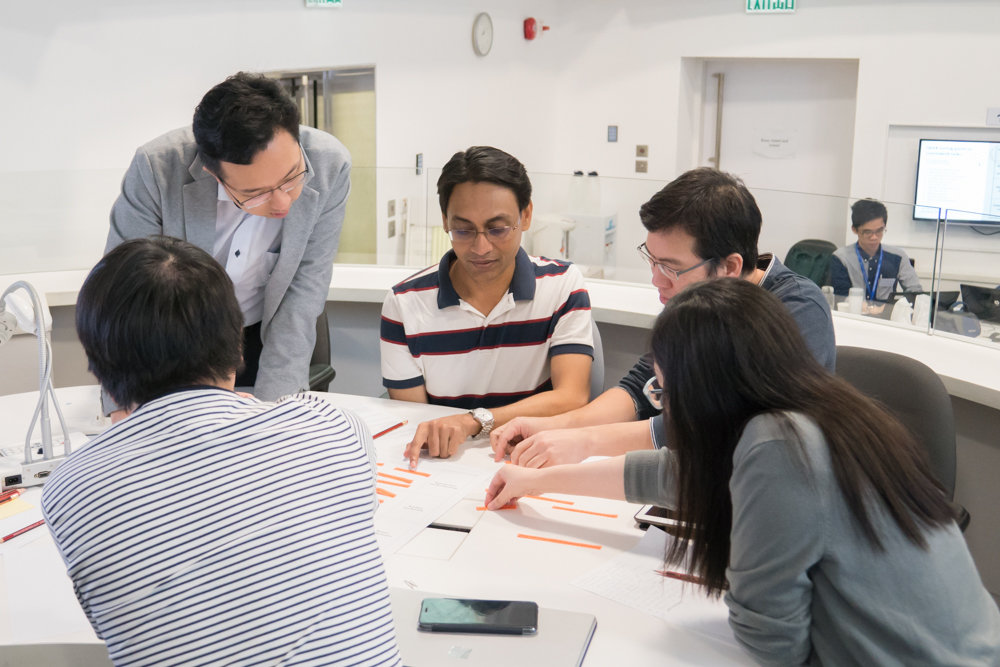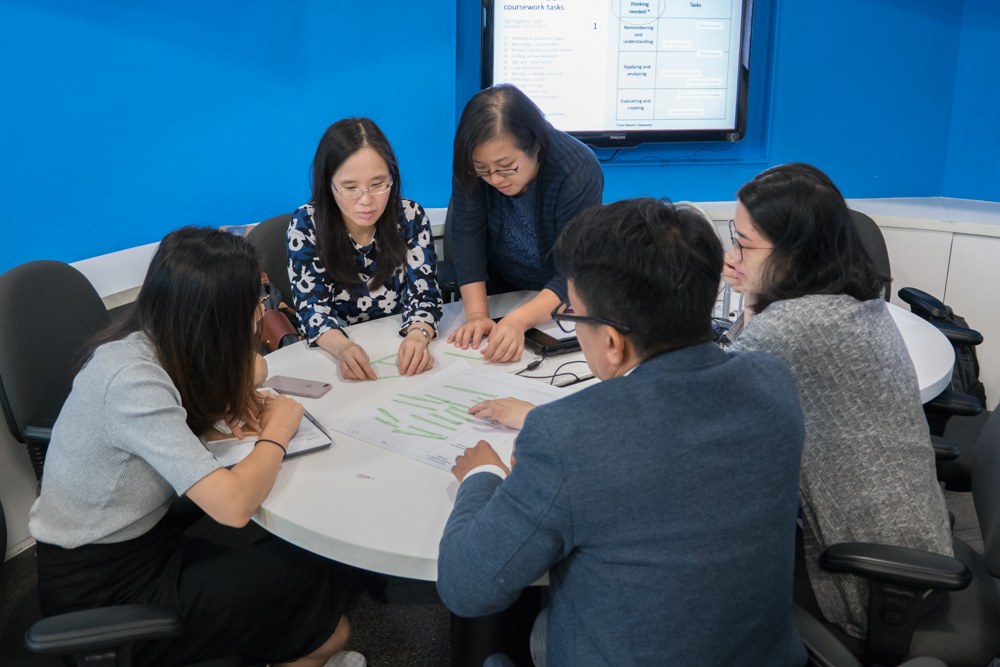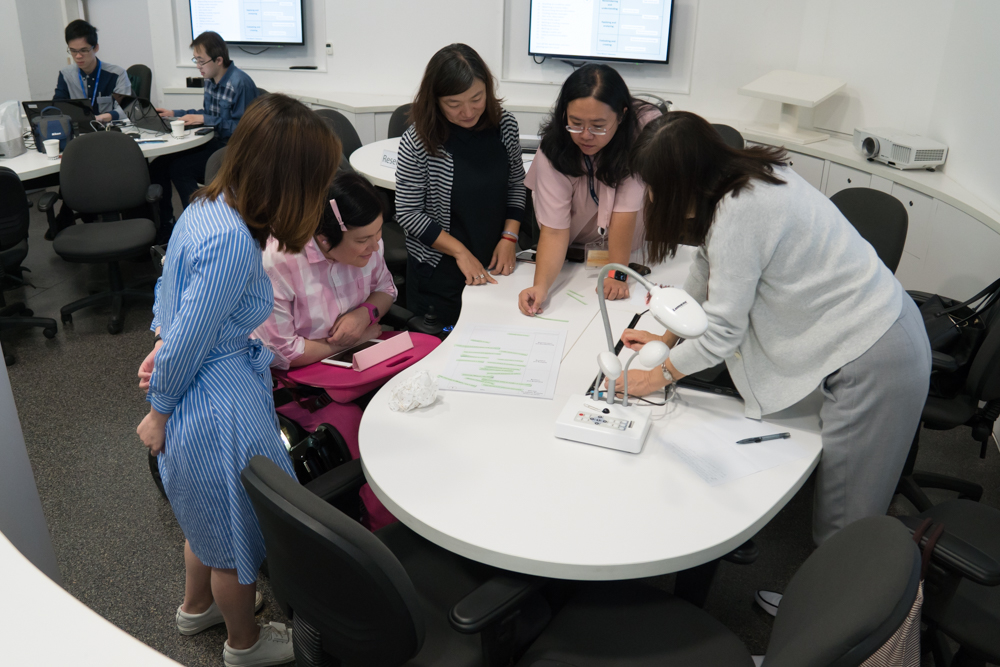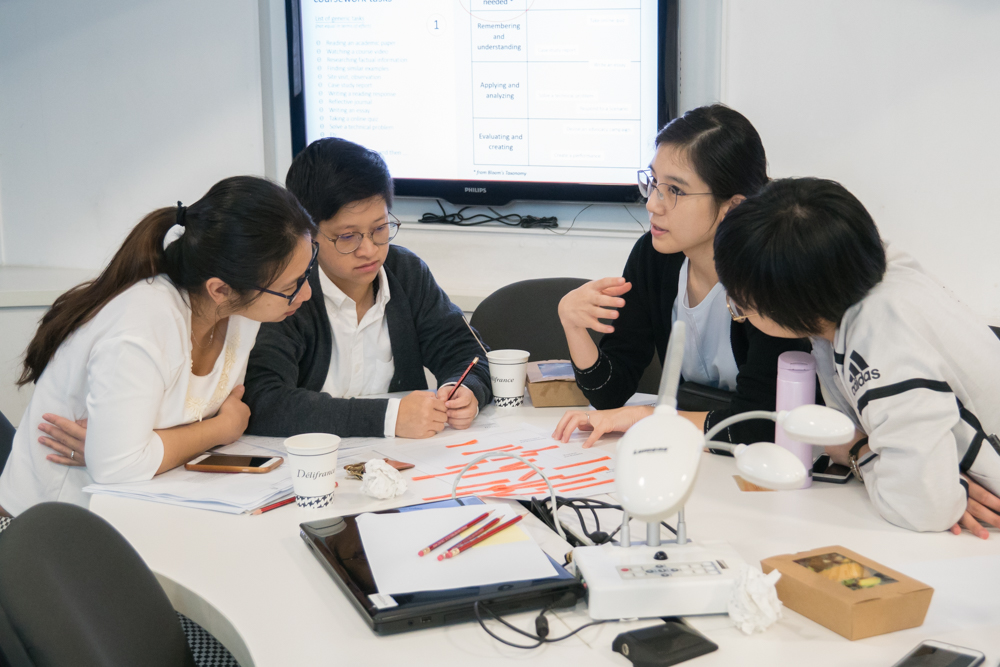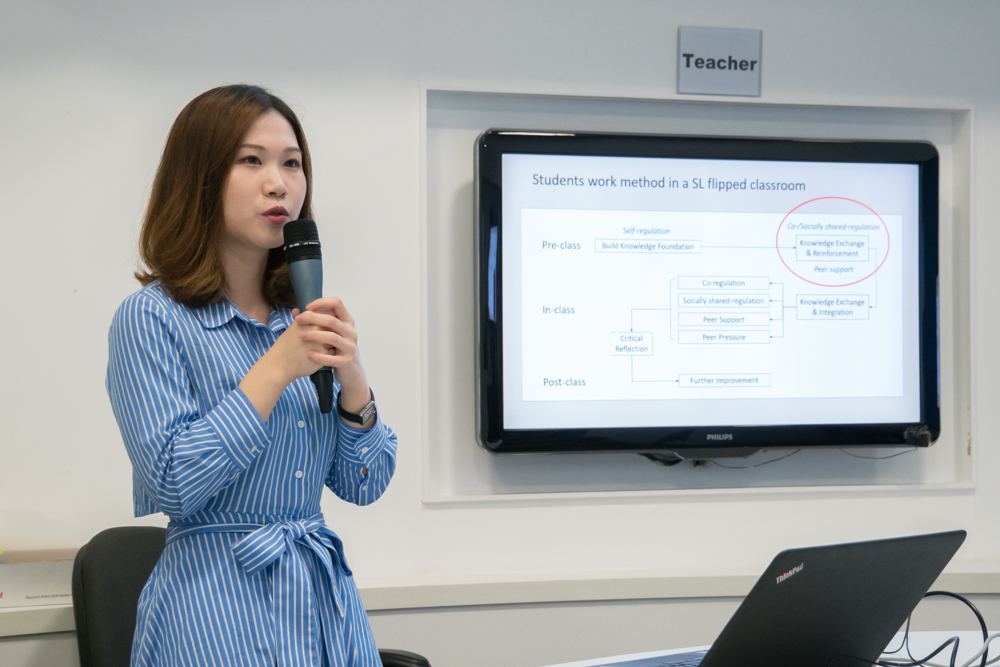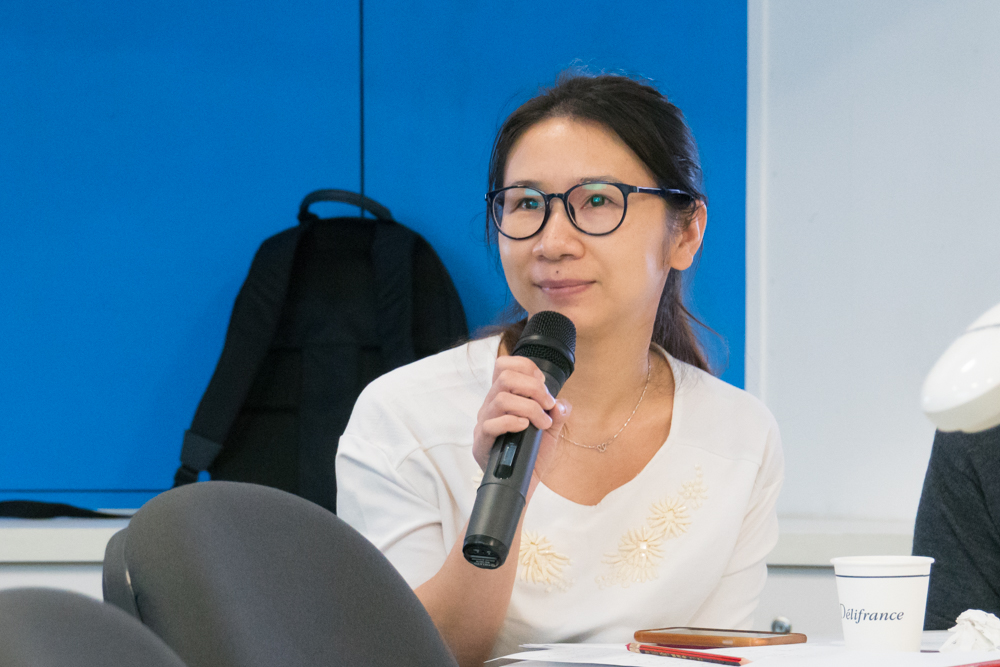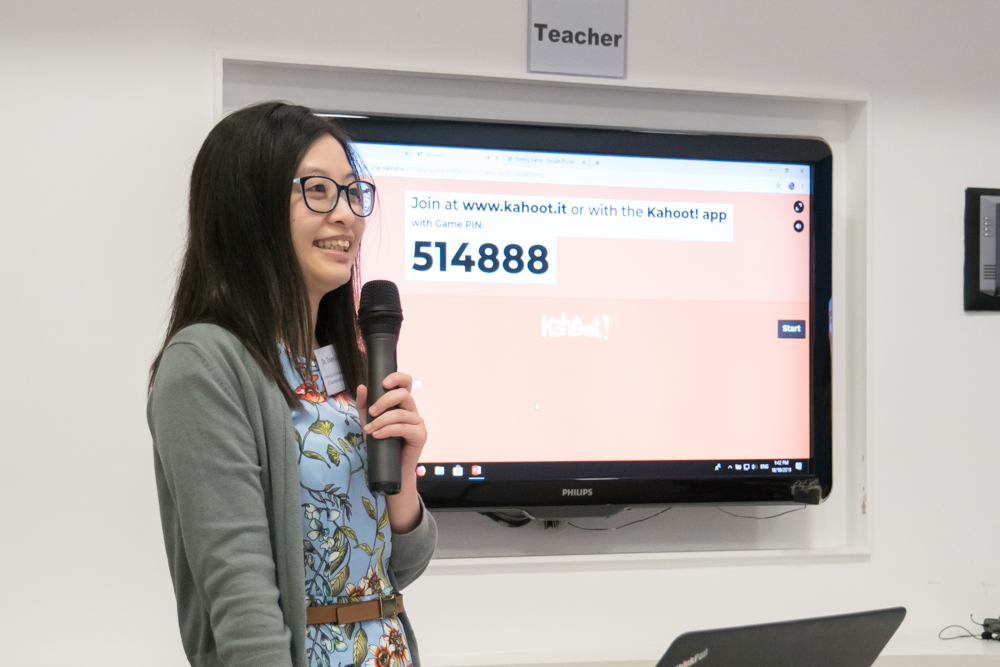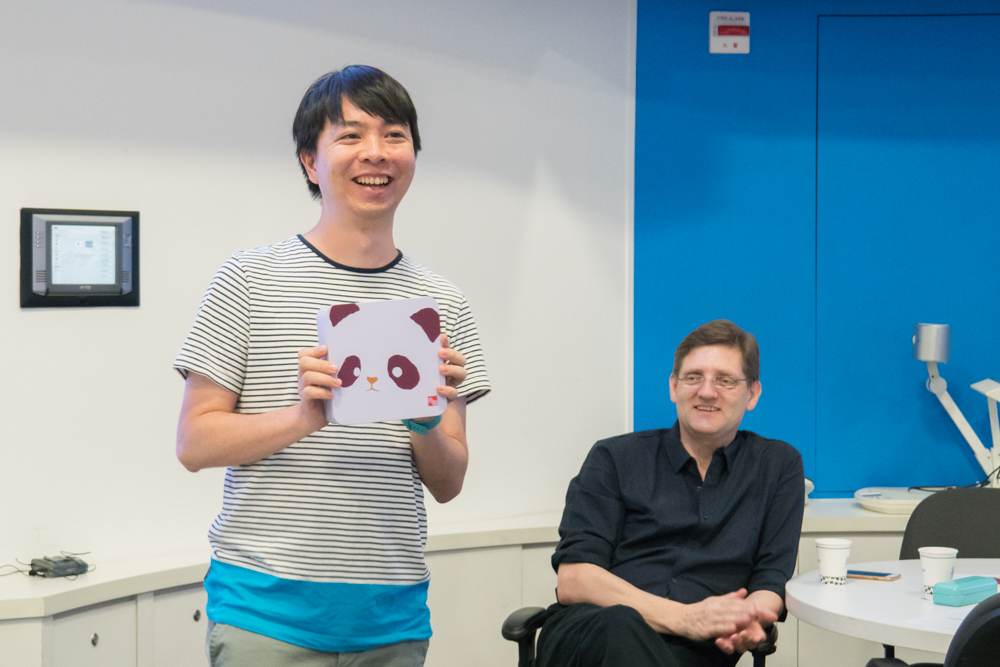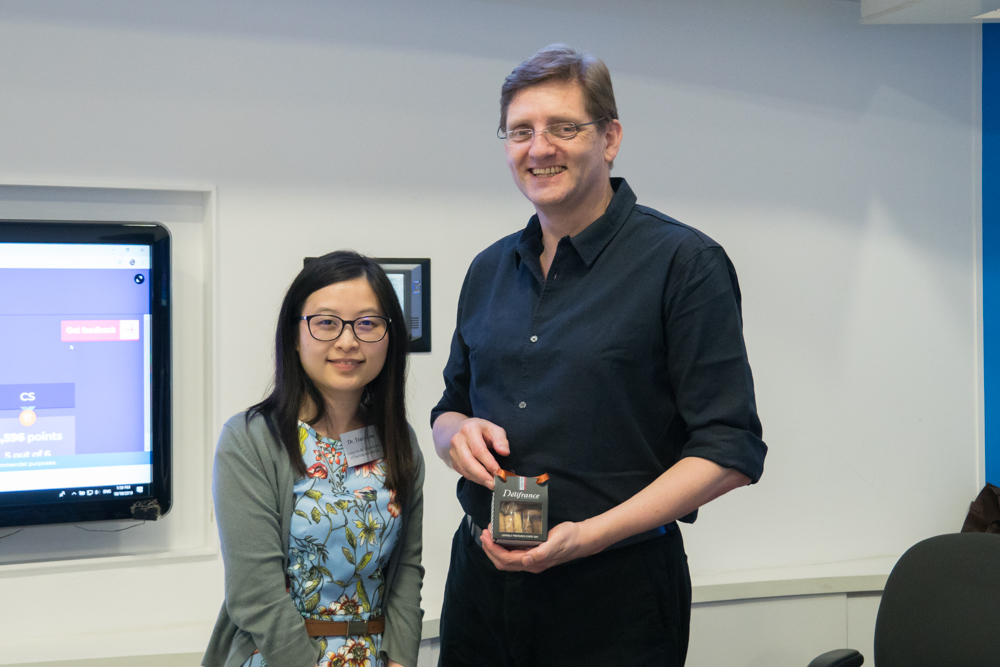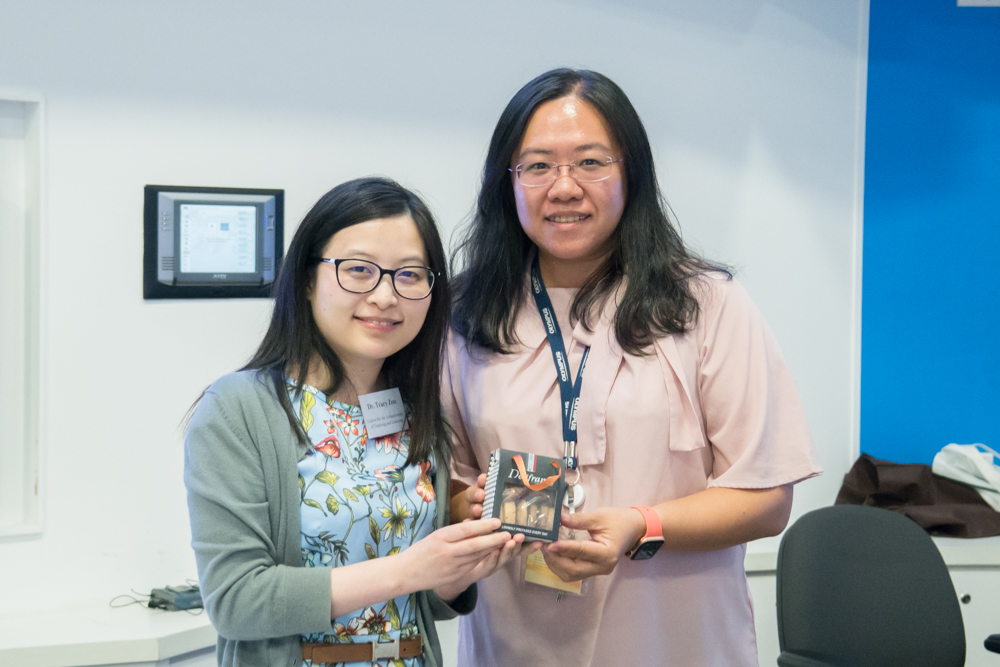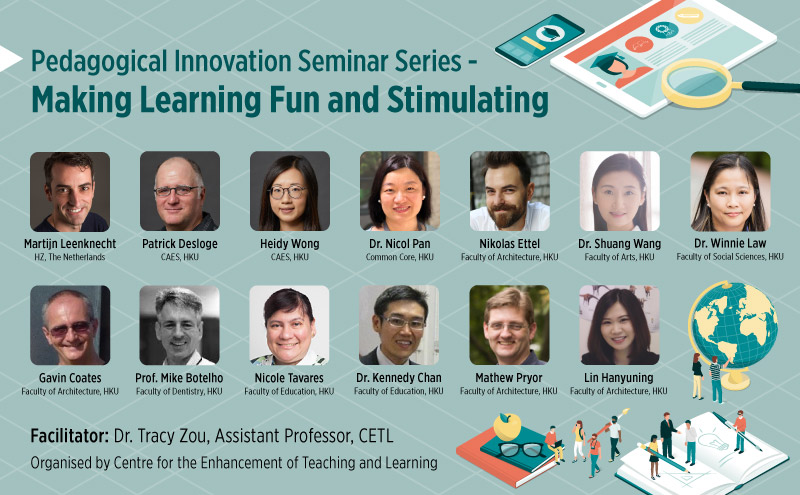
Organised by Centre for the Enhancement of Teaching and Learning (CETL)
Pedagogical Innovation Seminar Series – Making learning fun and stimulating
If we truly want our students to be innovative and forward-looking, we probably need to take a look at our teaching – have we created (or co-created with our students) a learning experience that is fun, stimulating and intellectually challenging? This pedagogical innovation seminar series aims to explore a number of pedagogical innovations that enhance students’ learning experiences. Participants will learn innovative ideas and practical strategies, and discuss how these might be relevant to their own classroom. The details of the seminars are as follows:
Seminar 1: Supporting students’ motivation to learn: A delicate matter
Date : 12 September 2019 (Thursday)
Time : 1:00 pm – 2:00 pm
Venue : RR321, Run Run Shaw Building, Main Campus
Speaker : Martijn Leenknecht, HZ University of Applied Sciences, Netherlands
Facilitator : Dr. Tracy Zou, Assistant Professor, Centre for the Enhancement of Teaching and Learning, HKU
Abstract
According to Self-Determination Theory, a teacher can support students’ autonomous motivation by providing autonomy support, structure, and being involved. By doing so, the teacher is nurturing students’ basic psychological needs of respectively autonomy, competence, and relatedness. However, supporting students’ motivation is not that evident in practice. The three aspects (or dimensions) of a motivating teaching style cannot be applied together very easily in each situation or context. Moreover, students perceive the style of their teacher differently and they seem not to be able to differentiate among the dimensions of the teacher’s style. In this workshop some theoretical issues will be raised and we will explore together the practical implications. Central question of the workshop is: What to do and what not to do as a teacher in order to motivate your students optimally?
About the speaker
Martijn Leenknecht is working as an educational researcher and policy advisor at HZ University of Applied Sciences in The Netherlands. This academic year he is finishing his PhD-project on (de)motivating teaching styles in higher education. Starting from Self-Determination Theory, he tries to untangle students’ perceptions of the dimensions of (de)motivating teaching styles in order to provide teachers at his institute (and beyond) with guidelines on how to optimally support students’ motivation. He is doing his PhD in part-time and he works also for the research group Excellence in Primary Education (HZ University of Applied Sciences), where he transforms his research to primary education and provides workshops for teachers from elementary schools. In his role as policy advisor, his focus is on assessment and he wrote (and is currently rewriting) the assessment policy of his institute. He is founder and coordinator of the Dutch national network “Learning from Assessments”, which is dedicated to calling attention to students’ role in assessment and the learning function of assessment. Topics the network is working on are for instance formative assessment, programmatic assessment, and feedback seeking behaviour of students. Besides research, the network produces practical guidelines and tools for teachers in higher education and organises seminars and symposia.
Seminar 2: Creating communication-rich video-based assessments: The Narrated Video Project Model
Date : 17 September 2019 (Tuesday)
Time : 12:30 pm – 1:45 pm
Venue : RR321, Run Run Shaw Building, Main Campus
Speakers : Mr. Patrick Desloge, Ms. Heidy Wong
Facilitator : Dr. Tracy Zou, Assistant Professor, Centre for the Enhancement of Teaching and Learning, HKU
Abstract
In recent years the use of digital media, especially video, for assessment purposes has become increasingly common as teachers push to create assessment tasks that will reflect the ubiquitous nature of media and technology in the learning environment. While the use of video has the potential to enhance learning and assessment, the introduction of this technology can, if not approached carefully, distract students from their primary task and create logistical burdens for teachers.
This seminar will present a model for using video-based assessment we are labelling as the ‘Narrated Video Project (NVP)’. This model taps the potential of video-based assessment while leading students to produce a product which is:
- communication-rich,
- technically contained and not overly complex, and
- suitable for both informative and reflective assessments.
The central communicative element in the NVP is a refined spoken narration and a technically simple visual track. By parsing out the audio and visual components in the production phase, this technique leads students to maintain a clear focus on the central message of their production. Furthermore, we will explain the pedagogy in such a way as to allow learners to reflect upon and refine their spoken English proficiency and develop visual literacy in ways that are difficult with oral presentations.
We will present and share exemplar work, task descriptions and rubrics of this process-focused production model. This seminar will outline a model which has led to the development of NVP as an assessment tool and present exemplar assessment guidelines and rubrics.
Finally, the participants will engage in a discussion around the type of support from CAES that would be useful moving forward with assessments such as the one outlined in this presentation. As we are currently scaling up our capacity to support colleagues across all faculties, we are looking for teachers already working on related assessments or interested in incorporating this type of project into their own courses. In both cases, we can provide support in forms of staff consultations to discuss the design and operationalisation of digital or spoken assessments, workshops and peer consultations for students.
About the speakers
Mr. Patrick Desloge is Senior Lecturer and Coordinator of Digital Literacy Communication Support Services in the Centre for Applied English Studies. He has been working in the area of education technology for nearly two decades. In recent years he has taken on two large projects: As the Director of the Nurturing Global Leaders (NGL) programme, he oversees an 8-week international experiential learning project with two digital media-based assessments. This project intersects with his second area of interest, digital literacies, where he is investigating the potential of digital media, specifically Digital Storytelling, as a mechanism to assess experiential learning.
Ms. Heidy Wong is a Lecturer in the Centre for Applied English Studies at HKU where she has developed and coordinated English-in-the-Discipline courses for undergraduate students. Over the years she has developed an interest in e-pedagogy, and has written a number of multimodal blended learning materials to improve students’ academic literacy in different projects. She now coordinates the CAES Speaking Studio and is a trained Digital Storytelling Facilitator.
Seminar 3: Join-the-conversation: Creative use of student-generated contents to enrich learning
Date : 26 September 2019 (Thursday)
Time : 12:15 pm – 1:45 pm
Venue : RR321, Run Run Shaw Building, Main Campus
Speakers : Dr. Nicol Pan, Mr. Nikolas Ettel, and Dr. Shuang Wang
Facilitator : Dr. Tracy Zou, Assistant Professor, Centre for the Enhancement of Teaching and Learning, HKU and Prof. Gray Kochhar-Lindgren, Director of Common Core, HKU
Abstract
Using student-generated contents is a powerful strategy to enrich learning. This join-the-conversation event brings three speakers from different disciplines to share with us their creative use of student-generated contents (e.g. films, narratives, prototypes, digital objects) to make learning personally relevant, engaging, and stimulating. Participants will see practical examples and join the conversation to discuss how they might be relevant or adapted to their own classes.
About the speakers
Dr. Nicol Pan has been teaching the Common Core course on Virtual Reality (VR) prior to taking up the Associate Directorship of the Common Core Curriculum. She has worked in the field of education with a particular focus on eLearning and its pedagogical applications for many years. In her capacity as an educational researcher and instructional designer, Nicol has worked across academic disciplines at HKU. She has also worked extensively with non-academic institutions and commercial companies in developing VR training programs, including Cathay Pacific and the Police Academy. Nicol is happy to join the Common Core team, and hopes to continue to work with talented people from across the faculties and departments to create innovative and stimulating courses and projects that bring about a positive impact on students’ lives.
Mr. Nikolas Ettel is a lecturer in the Department of Architecture at the University of Hong Kong. Born in Vienna, he holds a Bachelor of Architecture from the Academy of Fine Arts Vienna. In London he received The Bartlett Master’s Scholarship to complete his Master of Arts in Architectural History at The Bartlett School of Architecture, UCL. Nikolas has taught design and architectural theory courses in Hong Kong, Shanghai and Tokyo, and was a Visiting Lecturer at University of Saint Joseph Macau. His elective course Architecture & Memory takes a closer look at the art of motion pictures, in which students explore the productive interplay between cinematic productions and architectural discourses. The aim is to focus attention on works of quality in order to create new grounds for architectural discussions while enhancing our understanding of existing ones.
Dr. Shuang Wang is lecturer at the School of Chinese. She has been involved in teaching the Common Core courses since 2015. She is dedicated to using pedagogical innovations to enhance students’ engagement. She is the Principal Investigator of the project entitled “Pilot Project on Student Generated Knowledge: An Oral History Online Archival Database,” which won a Teaching Development Grant in 2018. This project has developed a model of student-generated knowledge database which helps students achieve a deeper level of thinking and engagement.
Seminar 4: Designing games and illustrations for innovative learning
Date : 3 October 2019 (Thursday)
Time : 12:30 pm – 2:00 pm
Venue : RR321, Run Run Shaw Building, Main Campus
Speaker : Dr. Winnie Law and Mr. Gavin Coates
Facilitator : Dr. Tracy Zou, Assistant Professor, Centre for the Enhancement of Teaching and Learning, HKU
Abstract
Games and illustrations are increasingly used to make learning fun. It is probably true that most students love games. Meanwhile, we need to ensure that the games and illustrations actually support meaningful learning of the subject rather than simply entertain students. In this seminar, Dr. Winnie Law and Mr. Gavin Coates will share with us how they design games and illustrations to engage students and also support their achievement of the intended learning outcomes. Welcome to join this seminar to discover a fun and meaningful learning experience.
About the speakers
Dr. Winnie Law is Deputy Director and Principal Lecturer in the Centre for Civil Society and Governance at The University of Hong Kong. Dr Law teaches both undergraduate and postgraduate courses on sustainable development, community planning and environmental management at The University of Hong Kong. She also works with a team of researchers and conducts policy research, action research and knowledge exchange projects on rural revitalization, social innovation, community engagement and corporate sustainability. Dr Law has been a director of the Conservancy Association since 2005 and she currently sits on a number of Hong Kong SAR Government’s advisory committees including Advisory Council for the Environment, Environment and Conservation Fund Committee, Steering Committee for Restored Landfill Revitalisation Funding Scheme, Advisory Committee on Agriculture and Fisheries and Agricultural Products Scholarship Fund Advisory Committee. She was also engaged by the UNEP and EU as social monitoring expert and planning consultant for environmental management projects in Vietnam.
Mr. Gavin Coates is a Senior Lecturer at HKU’s Division of Landscape Architecture teaching Planting Design, Landscape Technology and Landscape Representation. After graduating in 1980 he joined leading British landscape consultancy, Brian Clouston and Partners in London, transferring in 1982 to the Hong Kong office BCP Hong Kong (now ACLA Limited). He participated in several key Projects for the Hong Kong Government including Tseung Kwan O New Town infrastructure, various public housing estates, Yuen Long Town Park and the design of the waterfall area of Hong Kong Park. From 2004 to 2015, Gavin served as Principal Landscape Architect at ACLA Limited in Hong Kong, primarily involved with the design and site supervision of the Greening Master Plan programme instigated by the Civil Engineering and Development Department of the HKSAR Government, projects requiring a range of skills from city-wide urban planning, through streetscape improvement and waterfront promenade design, to detailed practical planting design and participation in public planting events. Gavin is also well known as a political cartoonist, illustrator, and author of environmental children’s books.
Seminar 5: The potential of Video Vox for enhancing learning
Date : 11 October 2019 (Friday)
Time : 12:30 pm – 2:00 pm
Venue : RR321, Run Run Shaw Building, Main Campus
Speakers : Prof. Mike Botelho, Ms. Nicole Tavares and Dr. Kennedy Chan
Facilitator : Dr. Tracy Zou, Assistant Professor, Centre for the Enhancement of Teaching and Learning, HKU
Abstract
Video Vox is an innovative video player and learning management system that allows new interaction possibilities with video content. It also allows teachers to house course materials. In particular, it allows the opportunity for the insertion of questions or comments to be timestamped in the video where students or teachers can start an asynchronous dialogue in a discussion board type format. Multiple choice questions can also be embedded in or outside the video for interaction or assessing understanding.
Today we will have feedback from early adopters who have trialed the platform in their teaching.
Nicole Tavares will share with us how she has been experimenting with the use of Video Vox in undergraduate and postgraduate courses to engage students in: professional dialogues, collaborative learning and joint reflections of their own classroom teaching experiences. The impact of using Video Vox in providing formative feedback and in supporting students in a related assessment task will be discussed. Nicole will also be reflecting on how students’ voice guides her practice.
Kennedy Chan will share with us how Video Vox can be used as a formative assessment tool to elicit pre-service science teachers’ initial knowledge bases about teaching and learning and to track their changing knowledge bases through engaging them in progressive reflection on the same video clips.
Michael Botelho will show how he has used the platform for using authentic clinical teaching encounters highlighting expert-student dialogue to support students’ learning.
About the speakers
Prof. Michael Botelho has been at the University of Hong Kong for over 20 years and has been actively involved in the design, development and implementation of a range of curriculum innovations and reforms in: PBL, e-learning, simulation training and competency assessments. He has published and presented on dental education in journals and at conferences locally and internationally and has conducted workshops on PBL, facilitator training, problem writing and standards descriptors for clinical skills performances. He is actively involved in the scholarship of teaching and learning and has been awarded a number of teaching development grants and a number of teaching and learning prizes including the Hong Kong UGC teaching award.
Miss Nicole Tavares is Senior Lecturer in the Faculty of Education at HKU where she teaches a range of English Language Teaching methodology courses at both undergraduate and postgraduate levels. Her expertise lies in using educational technologies and social media in promoting teacher professional development, content and language integrated learning (CLIL) practices, 21st century skills learning, interactive assessment, feedback, mistake-management and collaborative learning – all with a prime focus on student-centredness, learner engagement, teacher-student communication and the student voice. Her 2013 co-authored article published in Computers & Education titled ‘From Moodle to Facebook: Exploring students’ motivation and experiences in online communities’ has achieved 245 citations to date. For her commitment to and innovations in teaching and learning, she was presented with multiple awards by her Faculty: Distinguished Teacher Award (2006), Knowledge Exchange (Team) Award (2010), Teacher Effectiveness Award for the highest average SETL ratings in undergraduate programmes (2011–2014) and Outstanding Teaching Award (2015). She was also an HKU Outstanding Teaching Award winner in 2015. Nicole is dedicated to enhancing students’ learning experiences, never ceases to try out new teaching ideas in class and is delighted to share her insights on how research informs practice.
Dr. Kennedy Chan is an Assistant Professor in Faculty of Education at the University of Hong Kong (HKU). His research area includes teacher professional knowledge and use of video in teacher education. He is an invited participant of the second Pedagogy Content Knowledge (PCK) summit in the Netherlands and an awardee of several teaching awards, including the University Early Career Teaching Award, Student-led Teaching Feedback award and a finalist of the 2019 University Grants Committee (UGC) Teaching Award (Early Career Faculty Members).
Seminar 6: Socialised learning
Date : 18 October 2019 (Friday)
Time : 12:30 pm – 2:00 pm
Venue : RR321, Run Run Shaw Building, Main Campus
Speakers : Mr. Mathew Pryor and Ms. Hanyuning Lin
Facilitator : Dr. Tracy Zou, Assistant Professor, Centre for the Enhancement of Teaching and Learning, HKU
Abstract
In this seminar, we will introduce a Socialised Learning (SL) pedagogical model which was generated from inductive content analysis of qualitative data collected from semi-structured interviews with undergraduate students from a flipped-design common core course. As the name implies, the model identifies key social elements in learning design that can facilitate meaningful interactivity and collaboration amongst students, namely: knowledge exchange and integration; co-regulation; socially shared-regulation; peer support; peer pressure; and critical reflection. By adjusting the emphasis of these, SL endeavours to enrich students learning experiences, achieve significant enhancement of engagement (emotional and behavioural) and strengthen learning outcomes (academic gains and general skills). Practical guidance will be offered to help course designers maximise the socialisation in both online and offline learning environments.
About the speakers
Mr. Mathew Pryor is an Associate Professor (Teaching), Associate Dean (Teaching and Learning) in the Faculty of Architecture HKU, and a Senior Fellow of the Higher Education Academy (UK). He is engaged in long term pedagogical studies on the use of digital media in the teaching of architecture and the socialisation of online learning within blended learning courses. Mathew is a recipient of a Council of Educators in Landscape Architecture (USA) Excellence in Teaching Award (2019), HKU Teaching Excellence Team Award (2018), Faculty of Architecture Outstanding Teaching Award (2017) and HKU Teaching Excellence Award (2012), and has published academic papers and spoken at many conferences and seminars on transdisciplinary and experiential learning, and student engagement.
Ms. Hanyuning Lin is currently a Research Assistant in the Faculty of Architecture, HKU. She achieved a Master degree in Information Technology in Education and an Honour Bachelor degree in Psychology. Her research interest is student socialisation, emotion, engagement, motivation and learning outcomes in the technology-supported collaborative learning environment.
For information, please contact:
Mr. Thomas Lau , CETL
Phone: 3917 4807; Email: kanclau@hku.hk




